






In 2023, we celebrated the centennial of NorthWestern Energy and were honored to commemorate 100 Powerful Years by ringing the closing bell at Nasdaq. Throughout our century of service, the one thing that hasn’t changed is our commitment to finding the delicate balance between reliability, affordability, and sustainability. We are, and always will be, committed to delivering safe, reliable and innovative energy solutions that create value for our customers, communities, employees, and you, our shareholders.
As a shareholder, we encourage you to read through this proxy statement, vote on the proposals before you, and attend the virtual annual meeting. The 2024 Virtual Annual Meeting of Shareholders will be held on Friday, April 26, 2024, at 10:00 a.m. Central at www.virtualshareholdermeeting.com/NWE2024
YOUR VOTE COUNTS. Whether or not you plan to attend the virtual annual meeting, we encourage you to vote promptly via internet, telephone, or mail.
Thank you for your continued support of NorthWestern Energy.
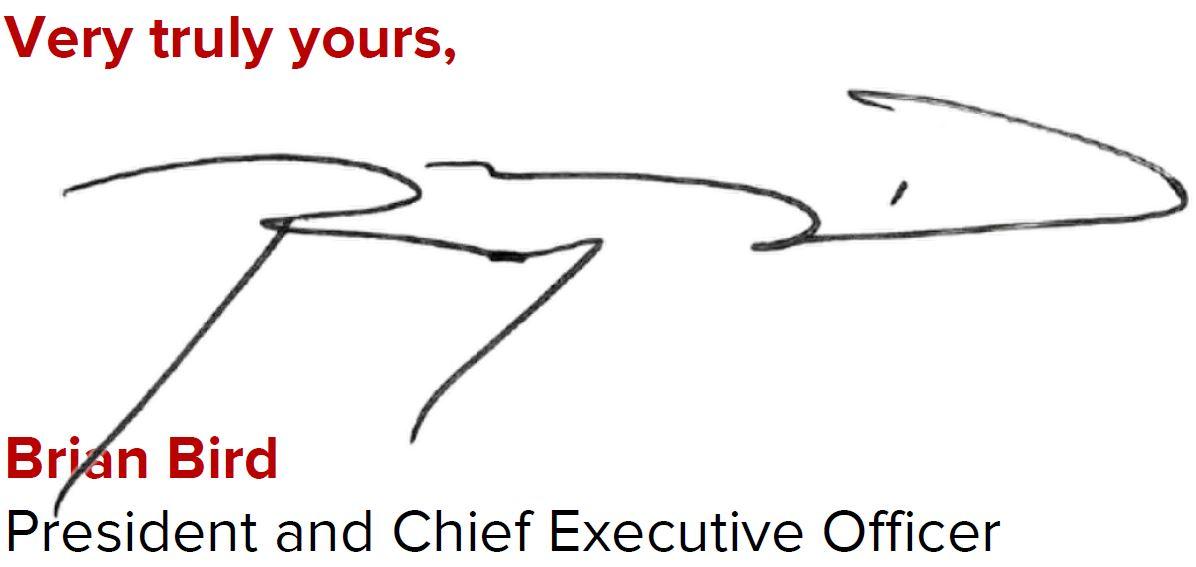
March 8, 2024
If you owned shares of NorthWestern Energy Group, Inc., common stock at the close of business on February 26, 2024 (the record date), we invite you to attend our virtual annual meeting of shareholders. You are entitled to one vote per share upon each matter presented at the meeting. Only our shareholders, their legal proxy holders as of the record date, or our invited guests may participate in the meeting.
01 Election of Directors
02
03
Ratification of Deloitte & Touche LLP as the Independent Registered Public Accounting Firm for 2024
Advisory Vote to Approve Named Executive Officer Compensation
Vote For See page 10
For
Date and Time
Friday, April 26, 2024
10:00 a.m. Central Time
Record Date
Monday, February 26, 2024
Place
Virtual Meeting
www.virtualshareholdermeeting. com/NWE2024
Mailing Date
On or about March 8, 2024, we mailed to our shareholders either (1) a Notice of Internet Availability of Proxy Materials or (2) a copy of our proxy statement, a proxy card, notice of Annual Meeting, and our 2023 Annual Report.
YOUR VOTE IS IMPORTANT. Our Board strongly encourages you to exercise your right to vote. Voting early helps ensure that we receive a quorum of shares necessary to hold the annual meeting. We do not anticipate any other business to come properly before the annual meeting.
IMPORTANT NOTICE REGARDING INTERNET AVAILABILITY OF PROXY MATERIALS. The Notice of the 2024 Annual Meeting, 2024 Proxy Statement, and 2023 Annual Report are available at www.proxyvote.com.
Sincerely,
 Timothy Olson Corporate Secretary
Timothy Olson Corporate Secretary
Shareholders of Record
By Internet
www.proxyvote.com
By Telephone
1-800-690-6903
By Mail
Complete your proxy card and cast your vote by pre-paid post.
Beneficial Owners
If you hold shares of our stock in the name of a broker, bank, or other nominee (in “street name”), please follow the instructions they provide on how to vote your shares and participate in the annual meeting.
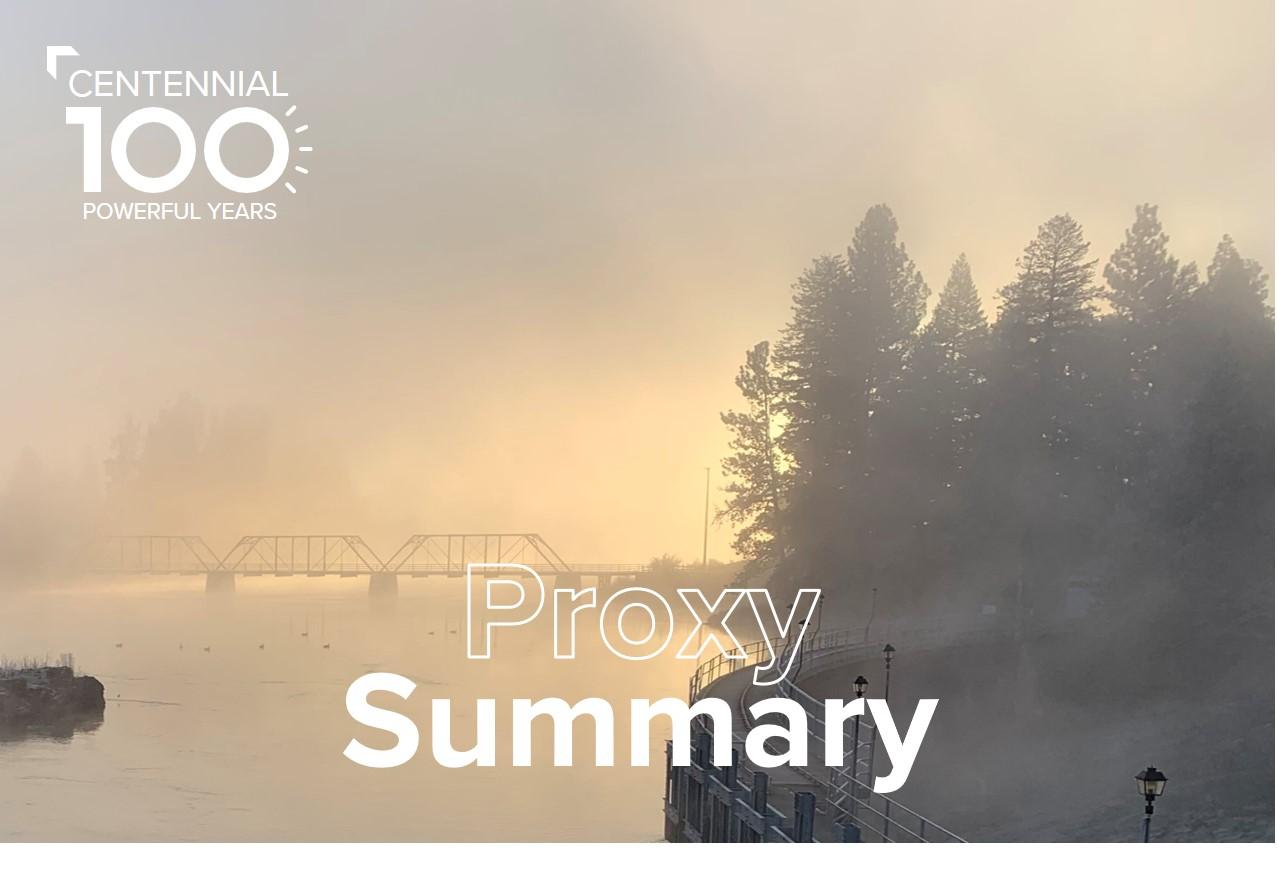

Our executive pay program is designed to align the long-term interests of our executives, shareholders, and customers. For many years, the program has consisted of four components (base salary, annual cash incentive, long-term equity incentive, and executive retirement equity awards). In 2023, we made two changes to our pay program. First, we updated our long-term equity incentive awards, which now are split 70/30 between performance share units with a three-year performance period and restricted share units with a three-year restricted period. Previously, such awards were 100 percent performance share units with a three-year performance period. Second, we discontinued our executive retirement equity awards and intend to replace such awards in 2024 with a more traditional supplemental executive retirement contribution. These changes better align our executive pay program with our peers and the market. The full design of our compensation program and its components are detailed in the Compensation Discussion and Analysis, beginning on page 18.
70 percent performance share units, based on EPS, ROAE and relative TSR performance over a three-year performance period and 30 percent restricted share units vesting over a three-year restricted period.
The performance-based incentive awards and time-based equity award place a significant percentage of executive compensation at risk — approximately 75 percent of the compensation of our chief executive officer (CEO) and roughly 56 percent of the compensation of our other named executive officers (NEOs). Our Board establishes the metrics and targets for these incentive awards based on advice from the Compensation Committee’s independent compensation consultant, WTW. The 2023 LTIP performance metrics did not change from 2022
We also require our executives to retain meaningful ownership of our stock (ranging from 2x to 6x their annual base salary). This structure encourages our executives to focus on both short- and long-term performance and rewards our executives, shareholders, and customers when we achieve our financial and operating objectives. The ratio for our CEO to median employee pay for 2023 was 23 to 1.
We believe 2023 was critical in setting the stage for future growth of our Company. We completed our general rate review in Montana during the second half of the year and in South Dakota in early 2024 and are hoping the resulting settlements will allow us to recover the cost of providing safe, reliable service, while contributing to earnings growth and achieving our financial objectives. We also completed our holding company restructuring near the end of 2023, which better aligned our corporate structure with the utility industry. Our net income increased from the prior year. For the three-year period ending December 31, 2023, we achieved an ROAE of 7.7 percent and EPS growth rate of 2.2 percent, but our TSR was unfavorable at negative 0.5 percent. Thus, we failed to reach target for our long-term incentive awards that vested in 2023.
Last year, we worked as safely as ever (equaling our previous best safety performance) and provided highly reliable service to our customers. However, our customer satisfaction performance did not align with our strong operational record. Thus, we achieved near target performance for our 2023 annual incentive awards. Further details regarding these awards and how performance is calculated are provided in the Compensation Discussion and Analysis.
At our 2023 virtual annual meeting, shareholders approved our 2022 NEO pay by 98.8 percent of the votes cast. In light of this overwhelming approval, we continue to operate within the same general parameters our shareholders previously approved, with the limited exceptions highlighted above and discussed in this Proxy Statement.
Based on the information in our pay versus performance disclosure, beginning on page 45, the CAP (compensation actually paid) to our NEOs is less than the compensation disclosed in the Summary Compensation Table. In some respects, this appears to correlate with performance — CAP appeared to increase with increased TSR. With half of our LTIP awards tied to relative TSR, this result is not surprising. In other respects, CAP does not appear to correlate with performance — CAP increased even though net income and our supplemental Company selected metric (three-year ROAE) decreased. This result also is not surprising because these metrics represent a small percentage of incentive compensation.
Corporate Governance is a pillar at NorthWestern Energy Group, Inc., and we believe our governance practices are sound, as demonstrated by our ranking from Moody’s Investor Service as the 5th best utility for governance practices. We provide details of our governance practices in the Corporate Governance section of this proxy statement.
We are nominating nine individuals for election as director, each of whom were elected by shareholders at last year’s annual meeting by an average of 99.2 percent of the votes cast. Each of the nominees is independent, with the sole exception of our CEO. We consider our Board to be diverse from several perspectives (including four female and two ethnic minority nominees), as detailed in the biographies of our nominees provided later in this proxy statement.
Our Board is led by an independent chair, and our four Board committees – Audit, Compensation, Governance, and Operations – are chaired by and composed entirely of independent directors.



Our Board is nominating nine people for election as directors at the 2024 annual meeting. All nominees currently serve as a director of our Board. Elected directors will serve for one year, until the next annual meeting of shareholders (or until a successor is able to serve). Our diverse slate of nominees is listed below, and we provide additional background information and individual qualifications for each nominee in the Corporate Governance— Individual Directors section of this proxy statement, beginning on page 57

The Board of Directors recommends you vote “FOR” each of the nine director nominees.
Unless you specifically withhold your authority to vote for the election of directors, the persons named in the accompanying proxy intend to vote “FOR” the election of each of the following director nominees:

All nominees have advised the Board that they are able and willing to serve as a director. Although not anticipated, if any nominee becomes unavailable for any reason, the shares represented by the proxies may be voted for such other person or persons as may be determined by the holders of the proxies (unless a proxy contains instructions to the contrary). In no event will the proxy be voted for more than nine nominees.
Over the past several years, the Governance Committee has led our Board through a director succession planning process to allow for a smooth and gradual transition from our longer tenured directors, while preserving the culture of the Board. This process includes a review of individual skill sets and tenures of current members and considers additional attributes that could be beneficial for the Board in the future, with a particular focus on Company strategy, emerging risks, and a diversity of perspectives.
Our Board values the diversity of its members. When selecting this slate of nominees, our Board concluded these nominees will provide insight from a number of perspectives based on their diversity with respect to gender, age, ethnicity, skills, and background. We believe these varied perspectives expand the Board’s ability to provide relevant guidance to our business.
Our Board also concluded that these individuals bring extensive professional experience from both within and outside our industry. This diversity of experience provides our Board with a broad collective skill set that is advantageous to the oversight of our Company. While the industry-specific expertise possessed by certain of the nominees is essential, we also will benefit from the viewpoints of directors with expertise outside our industry.
Our Board recommends a vote “FOR” election of each of the nominees.
Directors will be elected by a favorable vote of a plurality of the shares present online at the virtual annual meeting or represented by proxy and entitled to vote at the virtual annual meeting. You may vote “FOR” all of the nominees or you may “WITHHOLD AUTHORITY” for one or more of the nominees. Withheld votes will not count as votes cast for the nominee, but will count for purposes of determining whether a quorum is present. Shareholders do not have the right to cumulate their vote for directors. If your shares are held through a broker, bank, or other nominee and you do not vote your shares, your bank, broker, or other nominee may not vote your shares in this proposal, as it is considered a “non-routine” matter. Abstentions or broker non-votes as to the election of directors will not affect the election of the candidates receiving a plurality of votes; however, under our Majority Plus Resignation Vote Policy described on page 62 of this proxy statement, if a nominee for director receives more “WITHHOLD AUTHORITY” votes than “FOR” votes, such nominee shall immediately tender his or her resignation under the procedures in the policy.

After 15 years serving on our Board, Dana Dykhouse announced he will be retiring at the end of his annual term on April 26, 2024.
Mr. Dykhouse served the last three years as our independent Board chair and as our Human Resources Committee chair for many years prior to that. As a respected leader in the banking industry and a prominent South Dakota visionary, his guidance has been invaluable to both our Company and shareholders. We will miss his presence on our Board and are grateful to have had his service.
Our Audit Committee oversees the integrity of our accounting, financial reporting, and auditing processes. To assist with these responsibilities, the Audit Committee has appointed Deloitte as our independent registered public accounting firm to audit our financial statements for 2024. The Board is asking you to ratify the committee’s decision at the annual meeting. The Board values your input on the committee’s appointment of Deloitte, but approval by shareholders is not required by law. If shareholders do not ratify the appointment of Deloitte, the committee will reconsider its selection. Regardless of the voting result, the committee may appoint a new firm at any time if the committee believes a change would be in the best interests of the Company and its shareholders.

The Board of Directors recommends you vote “FOR” the ratification of Deloitte & Touche LLP as the independent registered public accounting firm for 2024.
Deloitte representatives will be present at the annual meeting. They will have the opportunity to make a statement if they desire to do so and are expected to be available to respond to appropriate questions.
The table below presents a summary of the fees Deloitte billed us for professional services for the fiscal years ended December 31, 2022 and 2023
Audit fees are fees billed for professional services rendered for the audit of our financial statements, internal control over financial reporting, review of the interim financial statements included in quarterly reports, services in connection with debt and equity securities offerings, and services that are normally provided by Deloitte in connection with statutory and regulatory filings or engagements. For 2023, this amount includes estimated billings for the completion of the 2023 audit, which Deloitte rendered after year-end.
Audit-related fees are fees billed for assurance and related services that are reasonably related to the performance of the audit of our financial statements and are not reported under “Audit Fees”.
Tax fees are fees billed for tax compliance, tax advice and tax planning.
All other fees are fees for products and services other than the services reported above.
SEC rules require public company audit committees to pre-approve audit and non-audit services. Our Audit Committee follows procedures pursuant to which audit, audit-related, tax, and all permissible non-audit services are pre-approved by category of service. The fees are budgeted, and actual fees versus the budget are monitored throughout the year. Circumstances may arise when it becomes necessary to engage the independent public accountants for additional services not contemplated in the pre-approved budget. In those instances, we obtain pre-approval of the Audit Committee before engaging independent public accountants. The procedures require the Audit Committee to be informed of each service, and the procedures do not include any delegation of the Audit Committee’s responsibilities to management. The Audit Committee may delegate pre-approval authority to one or more of its members; the member to whom such authority is delegated will report any pre-approval decisions to the Audit Committee at its next scheduled meeting.
Pursuant to the provisions of the Company’s Audit Committee Charter, before Deloitte is engaged to render audit or non-audit services, the Audit Committee must pre-approve such engagement. For 2023, the Audit Committee (or the Chair of the Audit Committee pursuant to delegated authority) pre-approved 100 percent of the audit, auditrelated, tax, and other fees.
In connection with their audit of our 2023 annual financial statements, more than 50 percent of Deloitte’s work was performed by full-time, permanent employees of Deloitte.
The affirmative vote of the holders of a majority of the shares present online at the virtual annual meeting or represented by proxy and entitled to vote at the virtual annual meeting is required to ratify the appointment of Deloitte as our independent registered public accounting firm for 2024. If voting instructions are not provided, brokers may vote a client’s proxy in their own discretion on this proposal, as it is considered a “routine” matter. Abstentions will have the same effect as a vote against the proposal. Unless instructed to the contrary in the proxy, the shares represented by the proxies will be voted “FOR” the proposal to ratify the selection of Deloitte to serve as the independent registered public accounting firm for NorthWestern Energy for the fiscal year ending December 31, 2024
In the performance of the Audit Committee’s oversight function, and in connection with the December 31, 2023, financial statements, the Audit Committee reviewed and discussed the audited financial statements with management and Deloitte. It discussed the matters required by the applicable requirements of the PCAOB and the SEC. The Audit Committee received the written disclosures and the letter from Deloitte, our independent registered public accounting firm, required by applicable requirements of the PCAOB regarding the independent accountant’s communications with the Audit Committee concerning independence; and it has discussed with Deloitte the firm’s independence. The Audit Committee considered the compatibility of non-audit services in connection with the auditor’s independence.
Based on the Audit Committee’s review of the consolidated financial statements and discussions with and representations from management and Deloitte referred to above, it recommended to the Board that the audited financial statements be included in our Annual Report on Form 10-K for the year ended December 31, 2023, filed with the SEC.
Audit, Finance, and Risk Committee
Linda Sullivan, Chair Jan Horsfall
Kent Larson Jeffrey Yingling
NorthWestern Energy Group, Inc., values your input as to how we pay our NEOs. As required by Section 14A of the Exchange Act, we conduct an advisory vote to approve NEO compensation (or a say-on-pay vote). Your vote will provide insight and guidance to the Company and Board regarding your sentiment about our executive pay philosophy, policies, and practices, as described in this proxy statement. Our Board will consider the guidance received by the say-on-pay vote when determining executive pay for the remainder of 2024 and beyond. We ask you to support our executive pay and vote in favor of the say-on-pay resolution.

The Board of Directors recommends you vote “FOR” the resolution approving named executive officer compensation.
In 2023, through the say-on-pay vote, 98.8 percent of the votes cast approved how we pay our named executive officers. In fact, since our first say-on-pay vote in 2011, at least 94 percent of the votes cast have approved our executive pay each year.
We view your voting guidance over the years as strong support for the way we pay our executives. Thus, in 2023, we left intact the foundation of the executive pay program you previously approved and continued to use the same four components: base salary, annual cash incentive awards, long-term equity incentive awards, and retention/ retirement awards. The only changes for 2023 from the 2022 program you approved, were (1) 4.5 percent base salary increases (the same increase available to some employees); (2) additional increases to certain executives’ base salaries and target incentives either to align with the market or to reflect increased responsibilities following a recent promotion; (3) a modification to our long-term equity incentive awards to replace 30 percent of such performance-based awards with a restricted share unit award that vests over time; and (4) discontinuation of our retention/retirement long-term equity awards. We made these changes to better align with the compensation practices of our peers and the market.
For additional information on our executive pay program, we have provided a more detailed explanation in the Compensation Discussion and Analysis section, starting on page 18 of this proxy statement, and the 2023 Executive Pay section, starting on page 36.
Our Compensation Committee, and our Board believe the Company’s overall executive pay program is structured to reflect a strong pay-for-performance philosophy and aligns the long-term interests of our executives, shareholders, and our customers. Accordingly, the Board recommends that shareholders approve our executive pay program by voting “FOR” the following advisory resolution:
RESOLVED, that the compensation paid to the Company’s named executive officers (as disclosed pursuant to the compensation disclosure rules of the Securities and Exchange Commission, including the Compensation Discussion and Analysis, the compensation tables and any related material disclosed in the Company’s 2024 proxy statement) is hereby APPROVED.
This advisory vote to approve NEO pay is not binding on the Company. However, we and our Board will take into account the result of the vote when determining future executive pay arrangements.
The affirmative vote of the holders of a majority of the shares present online at the virtual annual meeting or represented by proxy and entitled to vote at the virtual annual meeting is required to approve the say-on-pay resolution set forth above. If your shares are held through a broker, bank, or other nominee and you do not vote your shares, your bank, broker, or other nominee may not vote your shares in this proposal, as it is considered a “non-routine” matter. Assuming a quorum is present, broker non-votes or the failure to vote – either by not returning a properly executed proxy card or not voting online at the virtual annual meeting – will have no effect on the outcome of the voting on this proposal. Abstentions will have the same effect as a vote against the proposal. Unless instructed to the contrary in the proxy, the shares represented by the proxies will be voted “FOR” the proposal to approve, on an advisory basis, the pay of the Company’s NEOs, as set forth in the Company’s 2024 proxy statement.

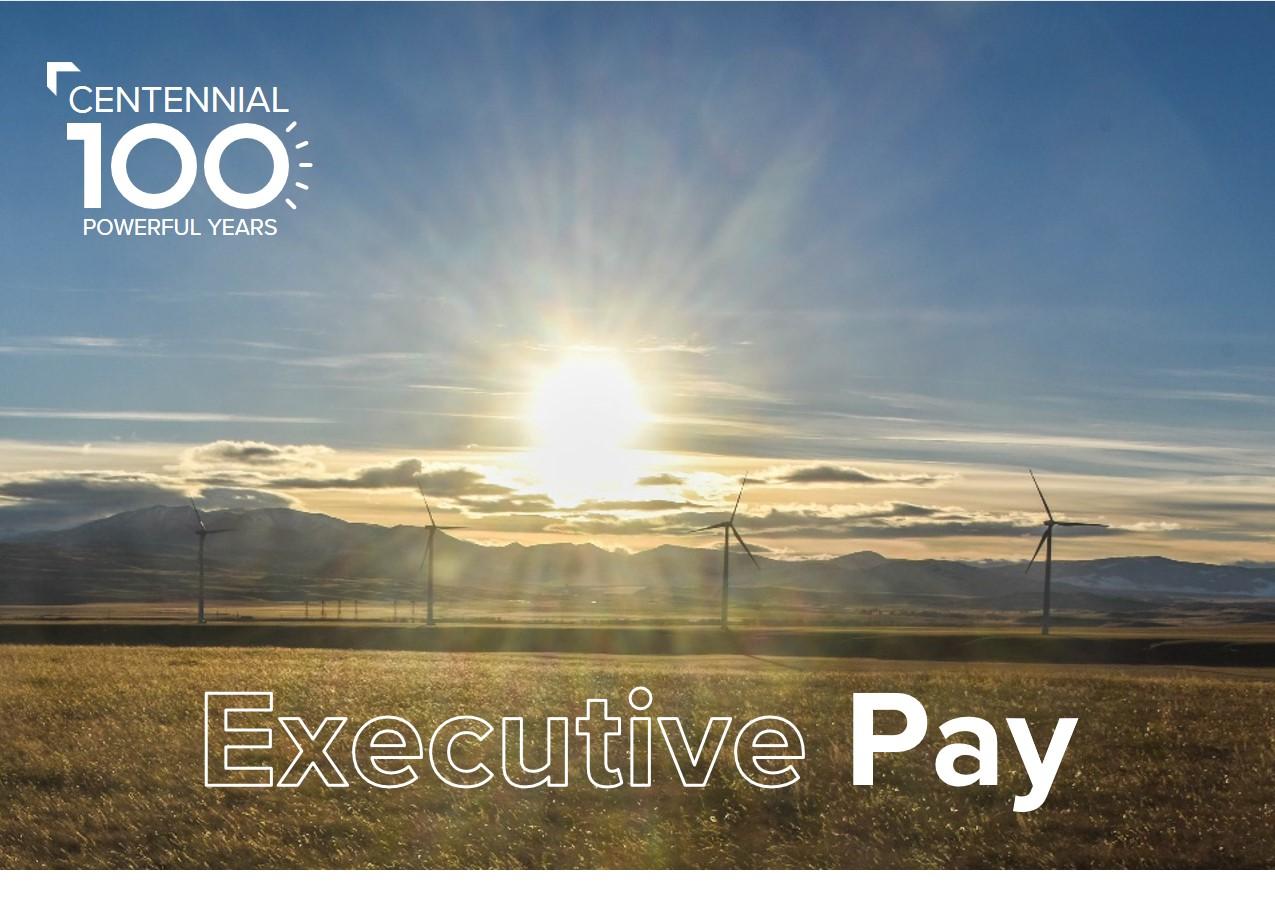

The Compensation Discussion and Analysis (CD&A) explains how we pay our executives and how the Compensation Committee of our Board oversees executive pay, including the rationale and processes the committee used to set executive pay in 2023. The CD&A summarizes the objectives and specific elements of our 2023 pay program, including cash, stock, and post-termination compensation. The CD&A, which may include forward-looking statements, should be read together with the compensation tables and related disclosures that follow it.
This CD&A is organized into the following sections:
In 2023, we continued to efficiently manage our business to achieve operational success while we set the framework for future growth through the completion of general rate reviews in Montana and South Dakota and implementation of our holding company structure. We worked as safely as ever while providing customers with reliable service better than our target, but our customer satisfaction ratings did not match those operational successes.
Our negative 10.1 percent shareholder return for 2023 ranked 8th among our 13-member peer group, trailing the peer group average of negative 4.1 percent. Meanwhile, our net income increased over 2022, but fell slightly below expectations, and EPS did not meet our expectations due to our need to issue incremental equity in 2022.
Our basic EPS declined 1.8 percent to $3.22 in 2023 from $3.28 in 2022.
In 2023, we equaled our best ever safety year, with lost time incident rate and total recordable incident rate better than target
Our TSR was negative 10.1 percent for the one-year period ending Dec. 31, 2023, ranking 8th of our 2023 peer group (negative 4.1 percent average).
The reliability of our electric and natural gas systems was better than target
Our dividend of $2.56 per share provided a dividend yield of 5.0 percent based on our stock price at the end of 2023.
In 2023, our JD Power customer satisfaction scores were lower than target
The overall pay our NEOs received in 2022 is in the bottom half of our 2023 peer group, which is identified on page 19 of this proxy statement. 2022 is the most recent year for which peer group executive compensation is publicly available at this time. Based on such 2022 compensation data:
• Our NEOs had an average compensation per NEO that was less than all but four of the other 12 companies in our 2023 peer group ($1.85 million for us versus $1.96 million for the peer median) (excluding changes in pension value); and
• Our CEO’s total compensation was approximately 75 percent of the median total compensation (excluding change in pension value) of the CEOs in our 2023 peer group.
Brian Bird
John Hines
President and Chief Executive Officer Vice President – Supply & Montana Government Affairs
Crystal Lail
Bobbi Schroeppel
Vice President and Chief Financial Officer Vice President – Customer Care, Communications and HR
Shannon Heim General Counsel and Vice President, Federal Gov't Affairs
We consider our executive pay program to be instrumental in helping us achieve our business objectives and effective in rewarding our executive officers for their role in achieving strong financial and operational performance. Based on our performance and our compensation outcomes, we are requesting your support of Proposal No. 3—Advisory Vote to Approve Named
Our overarching philosophy is that we should structure executive pay to be consistent with our peers and to align the long-term interests of our executives, shareholders, and customers so the pay appropriately reflects performance in achieving financial and non-financial operating objectives. To live up to this philosophy, we believe that a significant portion of an executive’s pay should be at risk in the form of either performance-based incentive awards that are only paid if the individual and Company performance targets are met or time-based equity grants.
Our executive pay program is designed to:
• Attract and retain a high-quality executive team by providing competitive pay and benefits that reflect our financial operational size;
• Reward executives for both individual and Company performance (based on financial, reliability, customer care, and safety metrics) through performance-based, at-risk pay; and
• Maximize long-term shareholder value by emphasizing financial performance, reliability, safety, and customer satisfaction.
Our Compensation Committee (a) selects the members of our peer group and periodically examines whether peers continue to meet the criteria for inclusion described below, and (b) uses our peer group for both compensation and performance benchmarking. As part of the peer group selection process, the Compensation Committee receives advice from WTW to create a peer group that includes companies that: (1) maintain a regulated utility industry perspective which emphasizes operational excellence and customer satisfaction as a means to create shareholder value; (2) reflect our labor market for key executive talent and are part of high-cost geographic areas; and (3) have similar revenue, market capitalization and return-based measures of performance.
For 2023, based on these criteria and the advice of WTW, our Compensation Committee did not make any changes to our peer group from 2022
ALLETE, Inc. (ALE)
Avista Corporation (AVA)
Black Hills Corporation (BKH)
IDACORP, Inc. (IDA)
MGE Energy Inc. (MGEE)
NorthWestern Energy (NWE)
Northwest Natural Holding Co. (NWN)
OGE Energy Corp. (OGE)
ONE Gas Inc. (OGS)
Otter Tail Corporation (OTTR)
PNM Resources Inc. (PNM)
Portland General Electric Company (POR)
Spire Inc. (SR)
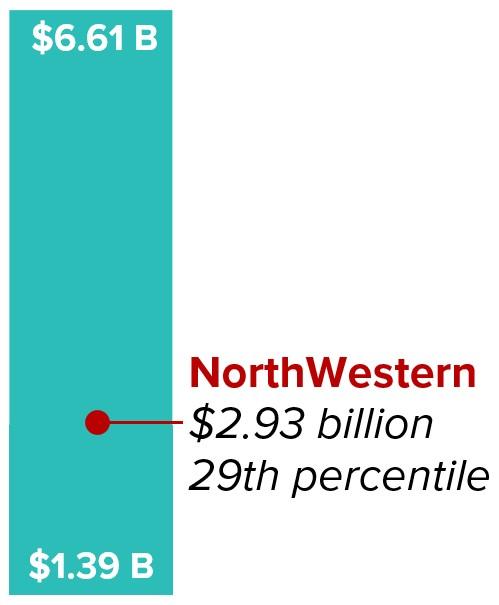
(1) Market capitalization range of our peer group as of February 29, 2024
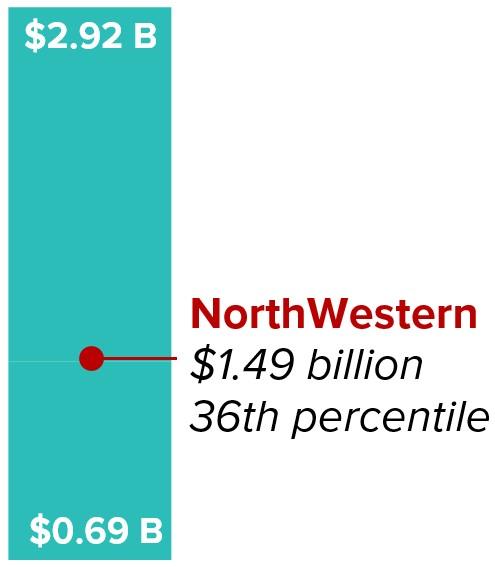
(2) Range of publicly available trailing twelve months total revenues for our peer group as of February 29, 2024
Our executive pay program accomplishes our goals by incorporating certain pay practices while avoiding other, more problematic or controversial practices.
• Place a significant portion of executive pay at risk by granting incentive awards that are paid, if earned, based on continuing annual and long-term individual and Company performance.
• Utilize multiple performance metrics for long-term incentive awards that align executive and shareholder interests.
• Target executive pay around the median of our peers, while also considering trade area economics, turnover, tenure, experience, and other factors.
• Use employment or golden parachute agreements.
• Provide change in control payments exceeding three times base salary and target bonus. Our only change in control provision appears in our Equity Compensation Plan and provides for the immediate vesting or cash payment of any unvested equity awards upon a change in control.
• Grant stock options. No stock options are currently outstanding, and none have been issued under our Equity Compensation Plan.
• Allow option repricing or liberal share recycling. These practices are expressly prohibited under our Equity Compensation Plan.
• Promise multi-year guarantees for salary increases.
• Provide perquisites for executives that differ materially from those available to employees generally.
• Maintain a non-performance-based top hat plan or separate retirement plan available only to our executive officers. In the past, we have maintained an executive retirement / retention program, with five-year cliff vesting of equity awards and a five-year payout period after the recipient’s separation from service.
• Pay tax gross-ups to our executives.
• Pay dividends or dividend equivalents on unvested performance shares or units.
• Allow our executives or directors to hedge Company securities.
For 2023, our executive pay package included four components — base salary, an annual cash incentive award, a performance-based long-term equity incentive award, and a time-based long-term equity incentive award. Our annual cash incentive award and 70 percent of our long-term equity incentive award are performance-based.
The table below provides a high level summary of our 2023 executive pay package. Please refer to the Pay Components section later in this CD&A for a more detailed summary of how we pay our executives.
Component Description
Base Salary Short-term fixed cash compensation
Annual Cash Incentive
Performance Unit Awards under LTIP
Short-term variable cash compensation, based on corporate performance against annually established metrics (financial, safety, reliability, and customer satisfaction) and individual performance
Long-term variable, equity compensation, paid following three-year vesting period if financial performance metrics (EPS, ROAE, and TSR) are achieved
Provide a base level of compensation for executive talent
Restricted Unit Awards under LTIP
Long-term at risk, equity compensation, paid following three-year restricted period
Motivate employees to meet and exceed annual Company objectives that are part of our strategic plan
Provide marketcompetitive, performancebased compensation opportunities while aligning interests of executives and shareholders; value of award is substantially dependent upon the changing value of our common stock in the market
Provide marketcompetitive, equity compensation opportunities while aligning interests of executives and shareholders; value of award is substantially dependent upon the changing value of our common stock in the market
amount Decisions for 2023 Reason for Change
Target middle of competitive range of peer group, with adjustments for trade area economics, turnover, tenure, and experience
Target middle of competitive range of peer group, with adjustments for trade area economics, turnover, tenure, and experience
Market survey of similar peer group roles and responsibilities and assessment of the strategic value of each position
Three NEOs received increases to reflect recent promotions, and the other two NEOs received the same 4.5 percent increase provided to employees generally
Updated performance targets; increased incentive target for three NEOs to reflect recent promotions
Remain market competitive, provide cost of living adjustment, and reflect increased responsibilities
Reflect increased responsibilities
Market survey of similar peer group roles and responsibilities and assessment of the strategic value of each position
Reduced to 70 percent sub-component of LTIP target award. Updated performance targets; LTIP target opportunity (combined PSU+RSU) increased for NEOs.
Reflect increased responsibilities and align with market
New 30 percent subcomponent of LTIP target award. LTIP target opportunity (combined PSU+RSU) increased for NEOs.
Reflect increased responsibilities and align with market
At our annual meeting in 2023, our shareholders continued to show strong support of our executive pay program, with 98.8 percent of the votes approving the say-on-pay resolution.
Those 2023 voting results occurred after the Compensation Committee took action to approve 2023 pay. Nevertheless, the Compensation Committee and the Board reviewed that feedback from shareholders when establishing executive pay for 2024. The Compensation Committee believes the results from our 2023 annual meeting affirm our shareholders’ continued support of the Company’s approach to executive pay.
The Compensation Committee, composed entirely of independent directors, is responsible for the oversight of:
• Pay, benefits, and other employment matters for executives;
• Stock-based pay plans for employees;
• The election and appointment of executive officers and other corporate officers;
• CEO performance; and
• Director pay.
The Compensation Committee considers several factors when it sets executive pay — all of which ultimately influence our executive pay program.
Provide pay that aligns management (and employee) interests with those of shareholders and customers.
Set pay based on economic circumstances, including turnover and retention considerations.
Establish overall pay approximating the median of our peer group and applicable position comparisons.
Tie all components of incentive pay to the Company’s short-and long-term financial and operational performance.
Attract Talent.
Set pay that will attract talent from both within and outside the utility industry.
Executives participate in same benefits plans available to all non-union employees, with no additional perquisites, other than executive physicals.
Our Compensation Committee has the authority to delegate certain responsibilities and has delegated some of the administration of our executive compensation and benefits plans to our Compensation and Benefits Department.
To help determine executive pay, the Compensation Committee retains WTW, for advice regarding the general competitive landscape and trends in executive and director pay. While the Compensation Committee meets with WTW from time to time, the chair of the Compensation Committee also communicates directly with the consultant in between committee meetings. WTW advises the committee on several matters including (1) competitive analysis (including in relation to our 2023 peer group), (2) incentive plan design, (3) updates on trends in executive and director compensation, (4) peer group composition, and (5) other compensation-related matters as requested by the committee.
The Compensation Committee works with WTW to analyze competitive market data to determine appropriate base salary levels, annual incentive target levels, and long-term incentive target levels for all of our executives, paying particular attention to applicable comparisons with our 2023 peer group. When making comparisons to the peer group, the Compensation Committee seeks to establish compensation levels that approximate its median. After determining appropriate levels, the Compensation Committee recommends both CEO and executive officer pay to the Board for approval. The CEO is not a member of the Compensation Committee and does not vote on Board matters concerning executive pay.
With respect to our CEO’s pay, the Compensation Committee conducts an annual performance assessment of the CEO and determines appropriate adjustments to all elements of pay based on his individual performance and the Company’s performance. For the other executive officers, the CEO and CFO make recommendations to the Compensation Committee for all elements of pay based on individual performance, market data from our peer
group and published survey data. The Compensation Committee reviews, discusses, modifies, and approves, as appropriate, these recommendations.
The Compensation Committee’s annual process for setting executive pay follows the general timeline depicted below.
July
Review and discuss timeline for setting executive pay
December
Evaluate overall executive pay program:
• Review preliminary five-year financial plan
• Approve upcoming annual incentive plan grants
• Review proposed long-term incentive grants
• Approve annual executive retention / retirement grants
October
Review materials from independent compensation consultant:
• Executive pay overview
• Peer compensation analysis
• Preliminary design of annual and long-term incentive opportunities
February
Finalize executive pay:
• Review final five-year financial plan
• Approve executive pay
• Approve long-term incentive program grants
• Review performance metrics results for prior year and approve payouts for current annual incentive plan and vesting of LTIP
At each of its regularly scheduled meetings throughout the year, the Compensation Committee reviews the Company’s performance under our outstanding annual and long-term incentive plans.
We target base salary, annual cash incentive awards, and long-term equity grants, as well as total pay, to be market competitive for our executive officers. Our Compensation Committee believes that the best proxy to determine market competitiveness of pay is the median of our peer group, including individual pay components, as well as total pay. However, because comparative data is one of several tools that is used in determining executive officer compensation, competitiveness of compensation may fluctuate based on a number of factors, including:
• The level of achievement of our pre-established performance goals;
• Our TSR compared against our peer group;
• Individual performance and scope of job responsibilities;
• Internal equity considerations;
• Market competitiveness and internal executive turnover; and
• The industry and position experience and tenure.
To align the long-term interests of our executives, shareholders, and customers, our Compensation Committee uses performance-based incentive awards and time-based restricted share units to place a significant component of each executive’s pay at risk. This structure encourages our executives to focus on both short- and long-term performance and provides a reward to our executives, shareholders, and customers when we achieve our financial and operating objectives.
The target pay mix for our NEOs changed in 2023 from 2022 because we discontinued equity incentive awards under our prior ERRP, which resulted in slightly reducing the percentage of at-risk pay (or pay contingent upon performance-based incentives and/or the value of time-based equity grants). As part of the overall 2023 pay package, our Compensation Committee increased (a) the base salary for three NEOs to continue a transition to align compensation with the additional responsibilities provided by promotions to more senior positions, (b) the base salary for all the other NEOs by the same percentage increase given to all employees, generally, and (c) target
incentives for certain NEOs under our annual incentive plan and long term incentive plan to either align with the market or reflect a promotion. In light of these changes, in 2023 at-risk pay decreased to 65 percent (from 71 percent in 2022) of target pay for our NEOs.
For our CEO, approximately 75 percent of the overall targeted pay in 2023 (base salary plus targeted annual and long-term incentives) relates to at-risk incentive awards. For our other NEOs, that percentage averages 56 percent. The charts below depict the target total pay mix for our CEO and the average of our other NEOs.
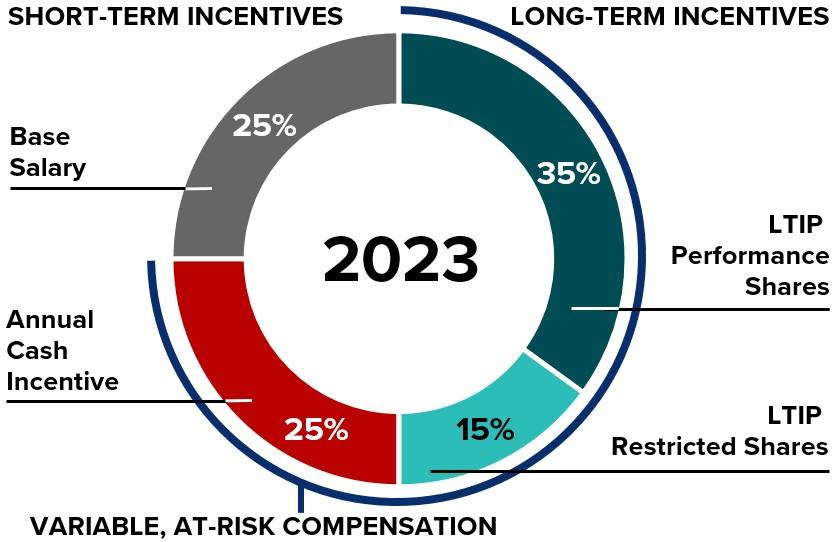
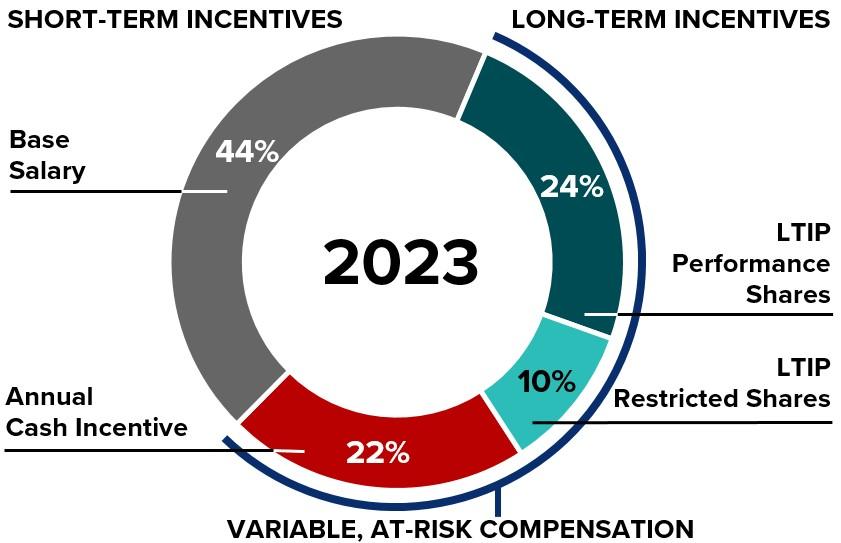
Charts represent target level for each component of compensation.
As a component of the Compensation Committee’s review of executive pay, the committee’s independent compensation consultant, WTW, provides an analysis of the pay levels of our peer group, as well as published survey data that focuses on the energy and utility industry, which is size-adjusted based on our revenues for appropriate market comparison. The 2023 peer group data is a primary basis for setting pay for our CEO and CFO because these positions are common among our peers. Both the peer group and survey data are analyzed and considered in setting pay levels for the remaining NEOs because these positions or division of responsibilities may not be common among our peers.
For long-term incentive purposes, WTW performs its analysis using the published survey data and focuses on companies in the energy services industry, specifically those with annual revenues similar to or less than ours. The Compensation Committee considers the responsibilities of the job performed by each of our executive officers and his or her performance, and adjusts each executive’s targeted pay amounts accordingly. As further detailed below, internal comparison with other officer positions also is considered.
In addition, WTW prepares an analysis of market data for energy services executives. The analysis examines the target direct compensation opportunity for energy services executives, including base salary, target annual incentives, and the expected value of long-term incentives. Using regression analysis, WTW size-adjusts the data to reflect our revenue scope.
We also conducted a separate internal analysis of the 2022 executive pay of the 12 other companies in our 2023 peer group. This internal analysis (which was based on proxy statement data) examined base salary, bonus, other annual compensation, equity awards, and non-equity incentive plan compensation (and excluded change in pension value). Using this analysis, our NEOs had average pay of $1.85 million in 2022, which was less than all but four of the 12 other companies in our 2023 peer group; while the peer group median had average pay per NEO of approximately $1.96 million. Our CEO’s total 2022 pay was approximately 75 percent of the median total pay of 2023 peer group CEOs.
These analyses demonstrate that, on average, our highest paid employees are paid at a level that is below the median of our 2023 peer group and industry. We also are cognizant of prevailing economic conditions, internal pay equity, and executive turnover, which our Compensation Committee takes into account when determining executive compensation.
We believe executive pay must be internally consistent and equitable to motivate our employees to create shareholder value. We are committed to internal pay equity, and the Compensation Committee monitors the relationship between the pay our executive officers receive and the pay our non-managerial employees receive. The Compensation Committee reviewed a comparison of CEO pay (base salary and incentive pay) to the pay of all our employees (other than our CEO) in 2023. The compensation for our CEO in 2023 was approximately 23 times the median pay of our employees, as compared to 26 times in 2022, using the same methodology.
Our CEO to median employee pay ratio is calculated in accordance with Item 402(u) of Regulation S-K. Although the applicable SEC rules would permit us to use the same median employee, we identified a new median employee for 2023 because that is the same process we have been using since our Compensation Committee first asked us to calculate our CEO pay ratio in 2010, and not because of any changes to our employee population or employee compensation arrangements that would significantly impact our pay ratio.
We identified the new median employee this year by using the same methodology we used to identify last year’s median employee — by examining the 2023 total cash compensation for all individuals (excluding our CEO) who were employed by us on the last day of our payroll year (December 22, 2023). We included all employees, whether employed on a full-time, part-time, or seasonal basis. We did not make any assumptions, adjustments, or estimates with respect to total cash compensation, and we did not annualize the compensation for any full-time employees that were not employed by us for all of 2023. We believe the use of total cash compensation for all employees is a consistently applied compensation measure because we do not widely distribute annual equity awards to employees (six percent of our employees receive annual equity awards).
After identifying the median employee based on total cash compensation, we calculated annual total compensation for that employee using the same methodology we use for our NEOs as set forth in the 2023 Summary Compensation Table later in this proxy statement and computed the ratio.
The Compensation Committee annually reviews the wealth accumulation of our executives, considering all of the elements of total pay each executive officer receives during the prior five-year period, including base salaries,
annual cash incentive payouts, the value of long-term incentive awards, and any special payments made to an individual executive. The Compensation Committee also reviews the projected value of each executive officer’s accumulated equity grants over the subsequent five-year period based on various stock appreciation and “stay to normal retirement” scenarios. This is done to analyze not only the amount of pay each executive officer has accumulated to date, but also to better understand how current equity grants may affect the amount of wealth executive officers accumulate in the future.
The primary pay components for our executive officers in 2023 were:
• Base Salary;
• Annual performance-based cash incentive awards; and
• Long-term equity incentive awards split 70/30 between performance share units and restricted share units
The Compensation Committee believes these pay components align the interests of our executives and our shareholders by placing a significant portion of total pay at risk based on achievement of our short- and long-term performance goals and/or continued employment. The specific mix among the individual components reflects market comparisons (primarily with respect to the median of our 2023 peer group) and individual position and performance. Base salary represents 25 percent of our CEO’s targeted total pay and, on average, 44 percent of our other NEOs’ targeted total pay. Performance-based awards (annual cash and long-term equity incentive) and timebased equity awards represent the remaining portion of targeted pay.
The Compensation Committee also believes that our executive pay program appropriately mitigates the risk associated with incentive-based pay. The Compensation Committee has designed the entire program and metrics under our annual and long-term performance-based incentive awards to curb inappropriate risk taking. For example, we do not offer guaranteed bonuses. In addition, our annual and long-term performance-based incentive awards utilize multiple performance metrics which vary from plan to plan, and rewards under those plans are aligned with the interests of our shareholders. If our shareholders benefit from our performance, our executive officers are rewarded. Furthermore, we have limited severance packages, and our retirement, healthcare, and welfare benefit programs for executives are generally the same as for all employees and are discussed in the 2023 Executive Pay section. Finally, we maintain robust stock ownership guidelines for our executives (from 2x to 6x base pay, depending on position). In light of these pay practices, the Compensation Committee believes that our executive pay program appropriately addresses the risks associated with performance-based incentives.
The general guideline for determining salary levels for our executive officers, including the CEO, is to be near the median of our peer group, adjusted for other factors such as trade area economics, turn-over, tenure, and experience. Adjustments from peer group levels are made based on experience in the position, industry experience, and individual performance and responsibilities. While we are cognizant of the competitive range, our primary goal is to compensate our executives at a level that best represents our pay philosophy, whether or not this results in actual pay for some positions that may be higher or lower than the market median. We find that survey results for particular positions can vary from year to year. Thus, we consider market trends for certain positions over a period of several years rather than a one-year period in setting pay for such positions.
The Compensation Committee considers adjustments to base salaries for executive officers on an annual basis. For 2023, the Compensation Committee felt that an increase to the base salaries of our executive officers, in line with the increases generally provided to our employees, was reasonable in light of the Company’s operating results in 2022. Additional increases for three NEOs were deemed advisable to reflect increased responsibilities as a result of promotions. At the beginning of 2023, we promoted Mr. Bird to CEO and Ms. Heim to the executive team as General Counsel and Vice President. Their respective base salary increases reflect the significant increased responsibilities associated with their respective promotions. Similarly, in early 2021, we announced that Ms. Lail
had been promoted to vice president and CFO. Ms. Lail’s base salary increase of 15 percent for 2023 reflected the continued transition of her compensation to match her increased responsibilities as CFO. The table to the right sets forth the base salaries for our NEOs. The base salary adjustments for 2023 were effective April 1, 2023
The overall design of our 2023 annual cash incentive plan is the same as the 2022 plan. The plan uses financial and operational performance metrics to motivate employees to meet and exceed annual Company objectives that are part of our strategic plan. The performance metrics include targets for net income, reliability, and two metrics related to the social category of our ESG sustainability efforts in the form of employee safety and customer satisfaction targets, which have been part of our plan for numerous years. All regular, non-union employees (including executive officers) participate in the same annual incentive plan; while our union employees participate in a separate, but similar, management-designed program.
Each participating employee has a targeted annual cash incentive award, expressed as a percentage of base salary. Actual payouts for awards reflect the Company’s performance against the metrics, as well as the employee’s individual performance. No portion of the annual cash incentive award is guaranteed.
The Compensation Committee calculates the actual payout pursuant to this four-factor formula: (1) (2) (3) (4)
For example, the Compensation Committee calculated the annual incentive payout for our CEO in 2023 as follows:
Base salary is the first component in the calculation of the annual cash incentive award. It is described in the Base Salary section immediately preceding this Annual Cash Incentive Awards discussion.
Each year, the Compensation Committee approves an annual incentive target opportunity, expressed as a percentage of base salary, for each executive. The Compensation Committee determines the target opportunity based on the recommendation by WTW, a competitive survey analysis of our peer group, and the committee’s judgment regarding the internal equity of the positions, scope of job responsibilities, and individual industry experience and tenure.
The table to the right shows the 2023 annual incentive target opportunity for our NEOs. In 2023, the Compensation Committee adjusted the annual incentive target opportunities for Mr. Bird, Ms. Heim, and Ms. Lail in connection with their recent promotions. The other NEOs remained at 2022 levels after the Compensation Committee determined that the existing target incentive opportunities were generally aligned with the incentive opportunity in the market place.
The plan funding percentage is determined by the Company’s performance against certain financial and operational measures. Management proposes the performance measures and associated targets, which the Compensation Committee and the Board review, adjust if deemed necessary, and then approve with adoption of the plan. Following the end of the plan year, the Compensation Committee reviews data submitted by management regarding Company performance against each of the specific performance targets and determines the degree to which each performance measure was met during the year, subject to Board approval. The aggregate percentage of financial and operational measures met during the plan year represents the plan funding percentage for the annual incentive plan.
For our executives, the funding (as a percentage of target) under the annual incentive plan has ranged from 74 percent to 136 percent for the five previous years, as illustrated in the table to the right.

For many years, including 2023, the annual incentive plan has used four categories of performance measures to determine the plan funding percentage – financial, safety, reliability, and customer satisfaction. The relative weightings of these measures are set forth in the graphic to the left.
In order for any awards under the 2023 annual incentive plan to be earned and paid out, the Company must attain at least 90 percent of the budgeted net income target, which coincides with the threshold net income target for the plan. This metric for determining performance against our financial goal is derived from our audited financial statements.
In addition, the 2023 annual incentive plan provided that the lost-time incident rate portion of the safety metric would be forfeited in the event of a work-related fatality, unless the Compensation Committee determined that no actions on the part of the employee or the Company contributed to the incident.
The Compensation Committee may use discretion in adjusting the plan funding percentage from actual performance due to specific facts and circumstances, such as current economic conditions as well as unusual onetime events that significantly impact financial or non-financial results. The Compensation Committee exercises this discretion only for unusual, non-operational items and did not exercise any such discretion for 2023.
The table on the following page shows the associated performance metrics (including threshold, target, and maximum levels), weighting, and plan payout percentage for each of the 2023 performance measures, which resulted in the plan funding at 77 percent of target for our NEOs.
(1) Financial. The net income target is based upon the Board approved budget for the plan year, and the actual achieved is determined by what is reported in our annual report on Form 10-K for the plan year.
(2) Safety. Safety performance regarding Lost Time Incident Rate and Total Recordable Incident Rate is calculated according to OSHA standards. OSHA specifically defines what workplace injuries and illnesses should be recorded and, of those recorded, which must be considered lost time incidents. The threshold level for the safety measures (other than training completion) represents an improvement over our 2022 plan and 10 to 15 percent better than our Edison Electric Institute (EEI) peer group average; the target level is significantly above our peer group average, an improvement over our five-year average, and an improvement over our 2022 plan; and the maximum represents first quartile performance for our EEI peer group and a significant improvement over historical Company performance. Safety Training Completion includes completion of assigned safety training for all employees through an internal education portal, and is calculated by dividing the difference of total courses assigned less total courses overdue by the total courses assigned.
(3) Reliability SAIDI (excluding major event days). System Average Interruption Duration Index (SAIDI) is a system reliability index used by us and participating Institute of Electrical and Electronic Engineers, Inc. (IEEE), utilities to measure the duration of interruptions on a utility’s electric system. SAIDI indicates the total duration of interruption for the average customer during a predefined period of time. The threshold level for SAIDI, excluding major event days, was set at the same level as our 2022 plan; the target level represents the same level as our 2022 plan; and the maximum level is significantly better than the five-year average of first quartile performance of IEEE medium-sized utilities.
SAIDI (including major event days). The threshold for SAIDI, including major event days, was set at the same level as our 2022 plan; the target level represents a two percent improvement over the Company’s 2022 target; and the maximum level is significantly better than first quartile performance of IEEE medium-sized utilities.
Damages per 1000 Locates. This natural gas reliability metric assesses the effectiveness of the Company’s programs to prevent damage to its natural gas system. The threshold level was set at a six percent improvement over the 2022 threshold; the target level was maintained at the 2022 target, representing a five percent improvement over the Company’s 2019 results; and the maximum level represents first quartile average for American Gas Association companies.
Leaks per 100 Miles of Main. This natural gas reliability metric assesses the overall performance of the Company’s natural gas system. The threshold level was set at six percent better than second quartile performance as reported by the American Gas Association; the target level was set at our three-year average and is 37 percent better than American Gas Association second quartile performance; and the maximum level represents first quartile average for American Gas Association companies.
(4) Customer Satisfaction. J.D. Power. One customer satisfaction metric is measured by the broadly utilized J.D. Power residential electric and gas customer satisfaction surveys and studies, which include the following components: communications, corporate citizenship, billing and payment, price, power quality and reliability (electric) or field service (gas) and customer service. The threshold level represents the Company’s five-year average and a seven point improvement over the 2022 threshold; the target level is an improvement of one point over our 2022 results; and the maximum level is a five point improvement over our 2022 results.
Flynn Wright Surveys. The remaining two customer satisfaction metrics are measured based on the results of a 2023 customer tracking survey conducted on our behalf by Flynn Wright, a full service advertising, marketing, public relations, web design, interactive and research advertising agency. For both of these metrics, the threshold level is set 10 percent below target; the target level represents our average score for three waves of surveys from Fall 2021 to Fall 2022; and the maximum level is set at 10 percent above target.
After the Compensation Committee determines the plan funding percentage, it determines an individual performance multiple for each executive, which is factored into the incentive payout calculation. To make this determination, the Compensation Committee analyzes the total mix of available information, as well as actual performance measured against pre-established goals.
The Company’s successes in 2023 were due to the substantial efforts of our executive officers and many other employees across all departments of the Company. As a result of the factors noted above, the Compensation Committee determined that it was appropriate to award each NEO (and the other executive officers) the annual cash incentive award as provided by the 2023 annual cash incentive plan, without the addition of any performance multiplier. Actual 2023 annual cash incentive awards for the NEOs are reflected in the table below.
The Equity Compensation Plan authorizes several types of stock-based awards, including restricted stock and a variety of performance-based awards. Historically, we have used our Equity Compensation Plan to provide annual long-term equity incentive awards, and, until 2023, all such awards included a performance metric. We used these performance-based awards to help us achieve our pay philosophy of being market competitive while simultaneously aligning the interests of our executives and shareholders.
During 2022, our Compensation Committee reviewed the market for long-term equity incentive awards and concluded that our practice of using exclusively performance-based awards did not align with the practices of our peers or the market. To achieve better peer and market alignment in 2023, the Compensation Committee awarded long-term equity incentive grants in an aggregate amount consistent with our historical practice, but split such grants 70/30 between performance share units and restricted share units, as summarized in more detail below.
Thus, in 2023, the Compensation Committee granted two types of long-term equity incentive awards to our executives under the Equity Compensation Plan: (1) LTIP performance share units which are earned (from 0 percent to 200 percent of target) based upon the satisfaction of specified performance metrics over a three-year, cliffvesting performance period; and (2) LTIP restricted share units with cliff vesting in full after a three-year restricted period. Our 2023 LTIP awards are payable, if and when earned, in shares of our common stock. Because payout will be made in shares of common stock, the ultimate value of the awards will be substantially dependent upon the changing value of the Company’s common stock in the market.
The Compensation Committee determines the terms and restrictions applicable to grants of LTIP performance share units. After the Company’s financial results are available for the prior year, the Compensation Committee approves the annual grant of LTIP performance share units to our executive officers (and approximately 70 other participants in 2023). The awards of LTIP performance share units are intended to provide a link between executive officer compensation and long-term shareholder interests as reflected in changes in our stock price, and to motivate and reward achievement of pre-established corporate financial goals and relative TSR.
The Compensation Committee believes that making an annual grant of LTIP performance share units motivates our executive officers (and the other participants) to focus on long-term, sustainable improvement in shareholder value. By tying the award payout to financial performance and continued service over a three-year vesting period, the Compensation Committee has ensured that the ultimate value of the award is dependent upon the value of our stock.
During the performance periods summarized in the table below, the performance measures for the LTIP performance share unit awards included (1) a combined financial metric comprised of ROAE and average EPS growth, contributing 50 percent of the payout, and (2) TSR relative to our peer group, also contributing 50 percent of the payout. The table shows, for the past five completed performance periods, the overall payout (expressed as a percentage of target).
LTIP Restricted Share Units. Prior to 2023, the Compensation Committee only awarded performance share units under the LTIP. In 2023, to better align our compensation program with our peers and the market, the Compensation Committee made the first awards of restricted share units under the LTIP. Instead of granting 100 percent performance share units under the LTIP, the Compensation Committee split the grant 70/30 between performance share units and restricted share units.
Like the awards of LTIP performance share units, the awards of LTIP restricted share units are intended to provide a link between executive officer compensation and long-term shareholder interests as reflected in changes in our stock price, and the Compensation Committee believes that making an annual grant of LTIP restricted share units motivates our executive officers (and the other participants) to focus on long-term, sustainable improvement in shareholder value. By tying the award payout to continued service over a three-year vesting period, the Compensation Committee has ensured that the ultimate value of the award is dependent upon the value of our stock.
In 2022, the Compensation Committee approved the last grant of annual ERRP restricted share units which began in 2011. The Company did not make any ERRP awards under the Equity Compensation plan in 2023. Historically, we used the ERRP awards to bring the amount of long-term incentive compensation of our executives in line with the median of our peers, while simultaneously encouraging executive retention with a five-year cliff vesting component and providing retirement benefits. However, the ERRP restricted share units were not comparable to any other compensation component used by our peers or the market.
A number of ERRP restricted share unit awards remain outstanding and will continue to vest, subject to satisfaction of the performance metric with respect to such awards, over the coming years. Like the LTIP performance share units and restricted share units described above, these ERRP restricted share units were intended to provide a link between executive officer compensation, retirement planning and long-term shareholder interests, and to motivate and reward achievement of pre-established corporate financial goals. Further details concerning these ERRP awards are provided below in Vesting of 2018 Executive Retention / Retirement Program Grants in 2023
In February 2023, the Compensation Committee approved grants under our LTIP. The target LTIP opportunities for each executive officer are derived from 2023 peer group and competitive survey data and from the Compensation Committee’s judgment on the internal equity of the positions and scope of job responsibilities. To determine the target value of each executive officer’s overall LTIP awards (which are split 70/30 between performance share units and restricted share units), the Compensation Committee considered the range for comparable roles within our peer group, with consideration given to the strategic value of each position. Based on these considerations, in 2023, the Compensation Committee increased the targeted opportunity (expressed as a percentage of base salary) associated with the LTIP awards for each of our named executive officers. Mr. Bird, Ms. Lail, and Ms. Heim received increases to reflect their increased responsibilities resulting from recent promotions. Mr. Hines and Ms. Schroeppel received increases to align overall compensation with the market.
Each executive officer’s targeted LTIP opportunity for 2023 is divided to account for the 70/30 split and then converted into specific LTIP performance share unit grants and restricted share unit grants by dividing the total targeted value (the targeted percentage of base salary) by the applicable weighted average fair value of a share of our stock on the grant date, less the present value of expected dividends. The resulting calculation represents the number of LTIP performance share units and restricted share units that were granted and will vest on December 31, 2025, if (i) with respect to the performance share units, all performance goals are met at the target performance level and (ii) with respect to the restricted share units, employment continues through the three-year restricted period.
The target equity opportunities (value at target and number of shares) for the 2023 grants of LTIP performance share units and restricted share units are shown in the table below. The table also shows any changes to the overall target LTIP opportunities (expressed as a percentage of base salary) from 2022 to 2023
(1) Based on a weighted average grant date fair value of $55.85, which was calculated using (a) the closing stock price of $58.48 on February 17, 2023, less the present value of estimated dividends of $0.64 per quarter, using a 4.33% three-year treasury bond yield and (b) a Monte Carlo valuation.
(2) Based on a grant date fair value of $51.31, which was calculated using the closing stock price of $58.48 on February 17, 2023, less the present value of estimated dividends of $0.64 per quarter, using a 4.33% three-year treasury bond yield.
LTIP Performance Share Units. After the performance period, the Compensation Committee calculates the actual Company performance relative to the performance goals and determines the number of LTIP performance share units that vest based on such performance. Depending on performance, the exact number of performance share units that vest will vary from zero to 200 percent of the target award. In addition, the value of the award on payout will depend on the market price of our common stock on the date of payout.
The performance goals for these performance share unit awards are independent of each other. Vesting of awards also is contingent on maintaining investment grade secured and unsecured credit ratings. The performance measures for the 2023 LTIP performance share unit awards included (1) a combined financial metric comprised of ROAE and average EPS growth, contributing 50 percent of the payout, and (2) TSR relative to our peer group, also contributing 50 percent of the payout.
The ROAE and simple average EPS growth levels are tied to management performance as these goals relate to revenue enhancement and cost containment. TSR is determined by our common stock price change and dividends paid over the performance period. We then compare our TSR with the TSR achieved by each of our 2023 peers over the same three-year period and determine our ranking.
LTIP Restricted Share Units. After the three-year restricted period, the LTIP restricted share units will vest, and the actual value of the award payout will depend on the market price of our common stock on the date of payout.
In February 2021, the Compensation Committee approved grants of LTIP performance share units, subject to a three-year performance period. The 2021 LTIP performance share unit grants vested on December 31, 2023 The performance goals were independent of each other and equally weighted. The table below summarizes the performance measures which governed these 2021 grants.
Depending upon actual Company performance relative to these performance goals, the exact number of shares that could have vested ranged from zero to 200 percent of the target award. Our relative TSR metrics for the 2021 LTIP performance share unit grants were established at levels higher than many of our peers, according to a market analysis conducted at the time of such grants by WTW. At the conclusion of the performance period, the Compensation Committee calculated the Company’s performance relative to these goals during the three-year performance period to determine the vesting percentage for the 2021 LTIP performance share unit grants.
For the financial goals related to the 2021 LTIP performance share unit grants, ROAE was 7.7 percent and simple average EPS growth was 2.2 percent. This financial performance resulted in a 0.0 percent vesting percentage for that half of the program. For our market goal, TSR was negative 0.5 percent, resulting in a ranking of 9th out of 13 with respect to our 2021 peers, and contributing 27.5 percent with respect to that half of the program.
For purposes of our 2021 LTIP, we calculated TSR by comparing the average closing price for a share of common stock of us and our 2021 peers during the period beginning 10 days prior to the end of the performance period and ending 10 days after the performance period plus the cumulative dividends earned during the performance period, to the average closing price of a share of common stock of us and our 2021 peers during the period beginning 10 days prior to the start of the performance period and ending 10 days after the start of the performance period. Our Compensation Committee believes that calculating relative TSR using the 20-day average share price around the beginning and end of the performance period results in a more accurate reflection of return for the period that is less impacted by stock market activity on the first and last days of the performance period.
Based on the calculation of these performance measures, the 2021 LTIP performance unit grants vested at 27.5 percent. The table below sets forth the results with respect to each of the performance measures applicable to the 2021 LTIP performance share unit grants and the corresponding contributions to the vesting percentage.
The table below sets forth the number of shares awarded for the 2021 LTIP performance share unit grants and the number of shares paid out in 2023 with respect to such grants for our NEOs, based on vesting at 27.5 percent
In December 2018, the Compensation Committee approved grants of ERRP restricted share units, subject to a fiveyear performance period from 2019 to 2023. The 2018 ERRP restricted share unit grants contained a financial performance metric that required the Company to achieve net income during any three of the five years during the performance period that exceeded the Company’s net income for 2018. As summarized in the following table, the Company did not achieve net income in three of the five performance period years that was higher than its net income for 2018, failing to satisfy the performance metric.
As a result of failing to achieve the financial performance metric, the 2018 ERRP restricted share unit grants did not vest on December 31, 2023. The table below indicates, for each of our NEOs, the number of 2018 ERRP restricted share units which were granted and the grant date fair value and shows that none of such grants vested.
(1) Based on a grant date fair value of $54.21, which was calculated using the closing stock price of $64.45 on December 13, 2018, less the present value of expected dividends, calculated using a 2.75 percent five-year Treasury rate and assuming quarterly dividends of $0.55 for the five-year vesting period, based on announced planned dividend of $2.20 per share for 2018.
Retirement benefits are offered to employees hired prior to January 1, 2009, through tax-qualified Company-funded pension plans and to employees through a 401(k) defined contribution plan. Both pension plans and 401(k) plans are common benefits provided in the utility and energy industry. Our executive officers, including the CEO, participate in some or all of these plans, and the terms governing the retirement benefits under these plans are the same as those available to substantially all employees. In 2023, we did not offer any supplemental retirement benefits to our executive officers. Our healthcare, insurance, and other welfare and employee-benefit programs are generally the same for substantially all employees, including the CEO and executive officers. We share the cost of health and welfare benefits with our employees, which is dependent on the benefit coverage option that each employee elects. Our executive officers do not receive any material perquisites or special benefits that differ materially from those available to employees generally.
We provide severance and post-termination benefits to our executive officers under our severance plan. Severance and post-termination benefits are explained in detail under the 2021 Executive Pay—Pay After Employment Ends section, starting on page 40 of this proxy statement.
The Company provides a non-qualified deferred compensation plan, which is intended to be an unfunded plan. The Officer Deferred Plan allows eligible officers to defer up to 100 percent of certain compensation, including base salary (subject to compliance with Section 409A of the Internal Revenue Code compensation limit), short-term incentive awards and awards earned under our Equity Compensation Plan. There are no Company contributions to the Officer Deferred Plan. Participants in the Officer Deferred Plan may elect to have deferrals credited to their
account in Company stock (in the form of deferred share units issued under the Equity Compensation Plan) or cash investment options that substantially mirror the qualified employee 401(k) plan investment options. The value of each deferred compensation account is adjusted periodically to reflect the gains, losses, and dividends associated with the designated investments. Officer Deferred Plan participants do not pay income taxes on amounts deferred or earnings thereon until those amounts are distributed from the Officer Deferred Plan. A participant’s benefits under the Officer Deferred Plan are fully vested and are payable after terminating employment. Benefits are paid in a lump sum (cash for cash deferrals and stock for stock deferrals) unless a participant elects annual installments.
We currently do not have employment agreements with any of our executives. We generally believe that ongoing employment agreements are not necessary to retain talented executives; however, agreements may be appropriate on a case-by-case basis. Due to the changing marketplace in which we compete for talent, the Compensation Committee regularly reviews this practice to help ensure that we remain competitive in our industry.
In October 2023, the Company adopted its Policy for the Recovery of Erroneously Awarded Compensation (Clawback Policy) that is intended to satisfy the requirements of Listing Rule 5608 of Nasdaq that was adopted to implement Rule 10D-1 under the Securities Exchange Act of 1934. The Clawback Policy provides that the Company will recover from each executive officer, reasonably promptly following an accounting restatement, the amount of Incentive-based Compensation (as defined in the Clawback Policy) that exceeds the amount of Incentive-based Compensation that otherwise would have been received had it been determined based on the restated amounts, computed without regard to any taxes paid.
Section 162(m) of the Internal Revenue Code limits the Company’s ability to deduct executive compensation paid to certain NEOs (and, beginning in 2018, certain former executive officers) to $1 million per year.
The Compensation Committee believes that the tax deduction limitation should not compromise our ability to establish and implement incentive programs that support the compensation objectives discussed above. Accordingly, achieving these objectives and maintaining required flexibility in this regard may result in payments of compensation or grants of awards that are not deductible for federal income tax purposes. The Compensation Committee reserves the right to pay compensation that exceeds Section 162(m)’s deductibility limit.
The Compensation Committee reviewed and discussed the CD&A with management. Based on this, it recommended to the Board that the CD&A be included in the proxy statement and incorporated by reference into the Annual Report on Form 10-K for the year ended December 31, 2023.
Compensation Committee
Mahvash Yazdi, Chair
Anthony Clark
Sherina Edwards
Britt Ide
In this section, the tables, footnotes, and narratives provide information regarding the compensation, benefits, and equity holdings in the Company for the NEOs during the years ended December 31, 2023, 2022, and 2021. Please refer to the Compensation Discussion and Analysis on the previous pages for a description of our executive pay program necessary to gain an understanding of the information disclosed below.
The table below sets forth the compensation earned by our NEOs during 2023, 2022, and 2021
(1) Ms. Heim and Mr. Hines became NEOs for the first time in 2023.
(2) These values reflect the grant date fair value of these awards as calculated utilizing the provisions of Accounting Standards Codification 718, Stock Compensation, and do not represent earned or paid compensation as the shares are subject to performance and vesting conditions. The values in the table above assume payout at target (100 percent) based on grant date fair value. With respect to the LTIP performance units reflected above, the exact number of shares issued will vary from zero to 200 percent of the target award, depending on actual Company performance relative to the performance goals. See Note 15 to the consolidated financial statements in our 2023 Annual Report on Form 10-K for further information regarding assumptions underlying the valuation of equity awards. The value of awards granted in 2023 (LTIP performance units and LTIP restricted units) for each NEO assuming a maximum payout (with respect to the LTIP performance units) based on grant date fair value would be $2,719,953 for Mr. Bird; $806,427 for Ms. Lail; $386,713 for Ms. Heim; $322,425 for Mr. Hines; and $321,166 for Ms. Schroeppel. The stock awards value for Ms. Lail for 2022 has been updated in this Summary Compensation Table to correct the value reported for 2022 in last year’s table, although the company believes the difference is immaterial.
(3) These amounts are attributable to a change in the value of each individual’s defined benefit pension account balances during the applicable year and do not represent earned or paid compensation. Pension values are dependent on many variables including years of service, earnings and actuarial assumptions. Our pension plans were closed prior to Ms. Heim joining the Company; therefore, she is not a participant in a pension plan.
(4) The table on the following page identifies the items included in the “All Other Compensation” column for 2023. Employee benefits include employer contributions, as applicable, for health benefits (medical, dental, vision, employee assistance plan and health savings account), group term life and 401(k) plan, which are generally available to all employees on a nondiscriminatory basis. Life insurance also includes imputed income consistent with IRS guidelines for coverage amounts in excess of $50,000 for each of the NEOs. Mr. Bird’s other income includes imputed income (and related tax gross up) from executive physicals. Ms. Lail’s other income includes paid time off benefit sold back to the Company at a rate of 75 percent and imputed income (and related tax gross up) from executive physicals. Ms. Heim’s other
income includes paid time off benefit sold back to the Company at a rate of 75 percent and tuition reimbursement. Ms. Schroeppel’s and Mr. Hines’ other income includes paid time off benefit sold back to the Company at a rate of 75 percent.
The table below shows the range of each NEO’s annual and long-term incentive award opportunities granted for the fiscal year ended December 31, 2023. The narrative following the table describes the terms of each incentive award opportunity.
(1) Reflects possible payout range of 2023 performance units and restricted share units awards. The performance units granted on February 17, 2023, have a weighted average grant date fair value of $55.85. The restricted share units granted on February 17, 2023, have a weighted average grant date fair value of $51.31
(2) These values reflect the grant date fair value of these awards as calculated utilizing the provisions of Accounting Standards Codification 718, Stock Compensation, and do not represent earned or paid compensation as the shares are subject to performance and vesting conditions. The values in the table above reflect grant date fair value assuming payment at target. See Note 15 to the consolidated financial statements in our 2023 Annual Report on Form 10-K for further information regarding assumptions underlying the valuation of equity awards.
Non-equity incentive plan compensation includes amounts earned under the NorthWestern Energy 2023 Annual Incentive Plan. Such amounts relate to 2023 performance and are actually paid in mid-March 2024. The Compensation Committee reviewed 2023 performance against plan targets and approved a plan payout of 77 percent, as discussed in the Compensation Discussion and Analysis—Pay Components—Annual Cash Incentive Awards section, starting on page 27 of this proxy statement.
As previously discussed in the Compensation Discussion and Analysis—Pay Components—Long-Term Performance-Based Equity Incentive Awards section in this proxy statement, the Board approved granting performance units and time-based restricted share units in 2023 under the Equity Compensation Plan. The values of the stock awards included in the table on the previous page reflect the grant date fair value of these awards as calculated utilizing the provisions of Accounting Standards Codification 718, Stock Compensation, and do not represent earned or paid compensation as the shares are subject to performance and vesting conditions. For the 2023 performance unit awards, the exact number of shares issued upon vesting will vary from zero to 200 percent of the target award, depending on actual Company performance relative to the performance goals. In addition, the value of a performance unit award (if earned) and a restricted share unit award on the vesting date, based on the fair market value of our stock on that future date, likely will differ from the value on the grant date, which is based on the fair market value of a share of our stock and, with respect to a performance unit award, is based on the target amount for such award. See Note 15 to the consolidated financial statements in our 2023 Annual Report on Form 10-K for further information regarding assumptions underlying the valuation of equity awards.
For 2023, base salary for the NEOs accounted for approximately 25 to 44 percent of total direct compensation (i.e., salary plus targeted annual and long-term incentive compensation), while incentive compensation accounted for approximately 56 to 75 percent of total direct compensation, assuming achievement of a target level of performance for each NEO.
The table below shows the number of shares acquired and the dollar amounts realized during 2023 pursuant to the vesting of prior equity-based awards.
(1)
(2)
The table below contains information regarding outstanding equity-based awards, including the potential dollar amounts realizable with respect to the awards for each NEO. Dividends are not paid or accrued on any unvested awards.
Equity Incentive Plan
Equity Incentive Plan Awards:
of Unearned Shares,
or Other Rights
Market or Payout Value of Unearned Shares,
or Other Rights
John
2020
Bobbi Schroeppel 2023
2020
2019
(1) Values were calculated based on a $50.89 closing price of our common stock on December 29, 2023
(2) The 2023 LTIP restricted share unit awards do not have any performance criteria and will vest on December 31, 2025, subject to the recipient’s continued employment through such date.
(3) The LTIP performance share units granted in February 2022 and 2023 will vest, if at all, on December 31, 2024 and 2025, respectively, subject to the satisfaction of the applicable performance and market criteria and generally subject to the recipient’s continued employment through such date. Based on performance through December 31, 2023, we are below target for payout of the 2022 and 2023 grants. As required by the SEC’s disclosure rules, the number of units and payout value shown for the 2022 grants and the 2023 grants assume a target level of performance (100 percent).
(4) The performance-based restricted share units granted under the ERRP in December 2020 and 2021 will vest, if at all, on December 31, 2025 and 2026, respectively, subject to the satisfaction of the applicable performance criteria and generally subject to the recipient’s continued employment through such date. The 2022 ERRP award does not have any performance criteria and will vest on December 31, 2027, subject to the recipient’s continued employment through such date.
(5) The 2019 ERRP awards will not meet the performance metrics associated with the awards and will not vest. However, such awards are presented in this table because they will not be forfeited until the Board takes formal action with respect to such awards following conclusion of the performance period.
We have two separate defined benefit pension plans that cover employees hired prior to January 1, 2009. The NorthWestern Energy Pension Plan is applicable to employees who began their employment in Montana, and the NorthWestern Corporation Pension Plan is applicable to employees who began their employment in South Dakota or Nebraska. The table below summarizes for each of our NEOs the years of credited service, present value of accumulated benefit, and any payments during the last fiscal year.
(1) Ms. Heim joined the Company after the pension plans were closed to new entrants and therefore is not eligible to participate.
We calculated the present value of accumulated benefits assuming benefits commence at age 65 and using the discount rate, mortality assumption, and assumed payment form consistent with those disclosed in Note 14 to the consolidated financial statements in our Annual Report on Form 10-K for the year ended December 31, 2023. While we calculated the present values in the table above assuming that benefits commence at age 65, the table to the right summarizes the cash balance available if the individual had terminated service as of December 31, 2023.
Under the NorthWestern Energy Pension Plan, a participant’s account grows based upon (1) contributions we make once per year, and (2) interest credits at the rate of six percent per year. Our contributions range from (a) three percent to 12 percent for eligible compensation, plus (b) 1.5 percent to six percent for eligible compensation above one-half of the taxable social security wage base. Upon termination of employment, an employee who is at least 50 years old with five years of service may begin receiving a monthly annuity or defer receiving benefits until he or she is required to take a minimum distribution.
Under the cash balance formula of the NorthWestern Corporation Pension Plan, a participant’s account grows based upon (1) annual pay credits, and (2) annual interest credits based on the average federal 30-year Treasury Bill rate for November of the preceding year. Pay credits range from three percent to 7.5 percent for compensation below the taxable wage base, and such amounts are doubled for compensation above the taxable wage base. Upon termination of employment, an employee (or if deceased, his or her beneficiary) may elect to (a) defer receiving benefits until he or she is required to take a minimum distribution or (b) receive an early retirement benefit of either (i) a lump sum payment equal to the cash balance in the account or (ii) a monthly annuity if age 55 or greater. Mr. Bird currently is eligible for the lump sum early retirement option and the monthly annuity early retirement option.
For both pension plans, credited years of service are based on actual hire date, and pensionable earnings include base pay only. Mercer Human Resources Consulting, the actuary for our pension plans, calculated the present value of accumulated benefits using participant data provided by us.
We implemented the Officer Deferred Plan in 2009. During 2023, Ms. Heim and Mr. Hines were the only NEOs who elected to defer compensation into the plan, and Mr. Hines is the only NEO who previously has deferred compensation into the plan. The Officer Deferred Plan is discussed in the Compensation Discussion and Analysis— Other Pay Policies—Non-qualified Deferred Compensation section of this proxy statement.
Prior to the discontinuation of our ERRP in 2023, our executive officers received annual ERRP grants. The 2022 ERRP awards were the last grants under such program. ERRP awards vested over a five-year period and were to be paid following separation of service. Pursuant to the terms of ERRP award agreements, when a grant vests, our executive officers receive restricted share units, which we credit to an account for each executive officer to a deferred compensation account. These restricted share units are not deferrals under our deferred compensation plan; however, the restricted share units are similar to deferred compensation because an executive officer cannot access the units until he or she is no longer our employee. For more details about our ERRP program, please refer to the Compensation Discussion and Analysis—Pay Components—Long-Term Performance-Based Equity Incentive Awards section in this proxy statement.
The table below summarizes the participation in the deferred compensation plan and our ERRP program by our NEOs in 2023. It also reflects that our 2018 ERRP awards did not vest.
(1) None of the earnings in 2023 were reported as compensation to such executive officer in the Summary Compensation Table.
(2) Reflects the following amounts for each of the executive officers related to the ERRP that were reported as compensation to such executive officer in prior Summary Compensation Tables: Mr. Bird, $727,388; Ms. Lail, $165,358; and Ms. Schroeppel, $193,123. Mr. Hines previously has not been a NEO and, thus has not reported any such compensation in prior Summary Compensation Tables. Ms. Heim became an executive (and NEO) in 2023, following the Company’s discontinuation of the ERRP and, thus, has no such amounts to report.
(3) Mr. Hines’ elective contributions under the deferred compensation plan prior to 2023 are $1,504,015, in the aggregate. Mr. Hines became a NEO for the first time in 2023.
We do not have severance agreements or golden parachute agreements. However, we do provide a Key Employee Severance Plan to certain employees, including our NEOs, covering involuntary terminations without cause, and our Equity Compensation Plan which includes change-in-control provisions. Details regarding these arrangements follow.
Our NEOs participate in our Key Employee Severance Plan. The Compensation Committee believes that it is appropriate for us to have a severance plan to provide a consistent means of addressing severance situations.
The Key Employee Severance Plan does not provide for change in control payments, but it does provide for the payment of severance benefits in the event an officer is terminated involuntarily without cause. Cause generally is defined in the Key Employee Severance Plan as (1) fraud, misappropriation of corporate property or funds, or embezzlement; (2) malfeasance in office, misfeasance in office which is willful or grossly negligent, or nonfeasance in office which is willful or grossly negligent; (3) failure to comply with our Code of Conduct; (4) illegal conduct, gross misconduct, or dishonesty, in each case which is willful and results (or is reasonably likely to result) in substantial damage to the Company; or (5) willful and continued failure by the employee to perform substantially his/her duties. Involuntary termination does not include a termination resulting from a participant’s death or disability.
The severance benefits payable to our NEOs under the Key Employee Severance Plan consist of:
• Severance Payment: A lump-sum cash payment equal to two times annual base pay plus two times targeted annual cash incentive;
• Interrupted Annual Bonus: A lump-sum cash payment equal to the amount of the annual cash incentive, pro-rated to the end of the month prior to separation of service and based on actual performance;
• Welfare Benefits: Reimbursement of COBRA premiums paid by the participant during the 24-month period following the participant’s termination date; and
• Outplacement Services: Up to $12,000 of outplacement services during the 12-month period following the participant’s termination date.
The table below shows the amount of potential cash severance that would have been payable, based on an assumed termination date of December 31, 2023, under the Key Employee Severance Plan, including the amount that each NEO would be entitled to be reimbursed for outplacement expenses and reimbursement of costs for continuing coverage and other benefits under our group health, dental, and life insurance plans. Severance benefits are not provided in connection with terminations for cause.
(1) Calculated at 100% of target and prorated for 11 of 12 months pursuant to the terms of the Key Employee Severance Plan.
(2) Amounts calculated using COBRA premiums in effect as of December 31, 2023
All outstanding equity awards were granted under our Equity Compensation Plan. In a change in control situation, the plan provides that either the vesting of awards will accelerate so that awards will vest as to the shares that otherwise would have been unvested, or the Compensation Committee will arrange or otherwise provide for the payment of cash or other consideration to participants in exchange for the satisfaction and cancellation of outstanding awards.
The table to the right shows the amount of potential stock value that would have been received, based on (i) an assumed change in control date of December 31, 2023, (ii) outstanding equity awards at target payout, and (iii) a closing stock price on December 29, 2023, of $50.89. For a termination of service that does not involve a change in control, death, disability, or retirement, all outstanding equity awards granted under the Equity Compensation Plan are forfeited.
Awards under our ERRP, as discussed in the Compensation Discussion and Analysis—Pay Components—LongTerm Performance-Based Equity Awards section in this proxy statement, if vested, will be paid out in shares of common stock of the Company over a five-year period following the participant’s separation of service.
Our executives are covered by the standard death and disability benefits that are available to substantially all employees. In addition, upon the death, disability, or retirement of a recipient of a performance or restricted share unit award, such recipient (or his or her executor or administrator) is entitled to receive a pro-rata portion of the award based on the number of full months such recipient was employed by the Company, and the remaining portion of the award is forfeited. In the case of death or disability, the pro rata portion is based on the target award. In the case of retirement, the pro rata portion will be paid at the end of the performance period based upon the level of satisfaction of the applicable performance goals. An award under the ERRP vests in full upon the death or disability of the recipient.
Assuming that our NEOs terminated their employment as a result of death, disability or retirement on December 31, 2023, each NEO would have received the same payout of the earned annual cash incentive award for 2023 that is set forth in the “Non-Equity Incentive Plan Compensation” column of the Summary Compensation Table on page 36. Similarly, each NEO would have received the same payout of long-term incentive compensation for the LTIP performance share units whose three-year performance period ended December 31, 2023, as reflected in the “Stock Awards - Value Realized” LTIP Vesting column in the 2023 Stock Vested Table on page 38. The reason for the same payouts is that the individual would have been employed throughout the entire performance period for the awards.
For the remaining outstanding grants of LTIP performance share units, LTIP restricted share units, ERRP restricted share units, and CEO promotion restricted share units, the table below and continuing on the following page shows the original grants, the percentage of the original grants that would vest, and the vesting value of those grants, assuming (a) the applicable NEO terminated his or her employment as a result of death, disability or retirement on December 31, 2023, (b) the applicable goals for such performance units were subsequently satisfied at target levels, and (c) the price of the Company's Common Stock was $50.89 (the closing price on December 29, 2023) at the time payouts of such performance units and restricted share units occurred.
(1) Values were calculated based on a $50.89 closing price of our common stock on December 29, 2023
(2) The CEO Promotional Grant was a one-time award of restricted share units the Board granted to Mr. Bird in December 2022 in connection with his promotion to the role of President and Chief Executive Officer, with half of the restricted share units vesting on the award’s third anniversary and the other half vesting on the fourth anniversary.
(3) The 2019 ERRP awards will not meet the performance metrics associated with the awards and will not vest. However, such awards are presented in this table because they will not be forfeited until the Board takes formal action with respect to such awards following conclusion of the performance period.
Compensation to our non-employee directors in 2023 consisted of cash and stock. Each Board member receives an annual cash retainer and an annual unrestricted stock award; our Board chair receives a higher cash retainer and stock award to reflect the additional duties as Board chair. In addition, each committee chair receives an additional annual cash retainer to reflect the additional duties as committee chair, and each committee member receives an annual committee member cash retainer.
The Board established its compensation levels for 2023 based upon the analysis and advice of WTW, who reviewed the competitive market data concerning Board compensation from peer company comparisons and provided recommendations to the Board. The table below presents the 2023 compensation schedule for our nonemployee directors (which was unchanged from the prior year).
The Company also reimburses non-employee directors for the cost of participation in approved continuing education programs and the expense of traveling for Board and committee meetings, but non-employee directors are not eligible to participate in our retirement plans. We do not compensate employee directors for service on the Board.
Non-employee directors may elect to defer up to 100 percent of any qualified cash or equity-based compensation that would be otherwise payable to them, subject to compliance with the Director Deferred Plan and Section 409A of the Internal Revenue Code. For those directors who defer their compensation under the Director Deferred Plan, the meeting fee or retainer, as applicable, is the value utilized to determine the amount of deferred compensation. The deferred compensation may be invested in deferred stock units of the Company’s common stock or in designated investment options that substantially mirror the qualified employee 401(k) plan options. Based on the election of the non-employee director, other than on account of death, he or she shall receive a distribution either in a lump sum or in approximately equal installments over a designated number of years (not to exceed 10 years). Distributions of DSUs will be equal to one share of the Company’s common stock for each unit. The value of each deferred compensation account is adjusted periodically to reflect the gains, losses, and dividends associated with the designated investments.
The table below sets forth the compensation received by our non-employee directors in 2023.
(1) The values for stock awards reflect the grant date fair value of the awards, calculated utilizing the provisions of Accounting Standards Codification 718, Stock Compensation. The grant date fair value of annual stock awards made during 2023 was (a) $56.80 per share for deferred awards elected by Directors Yazdi and Yingling, (b) $59.34 for undeferred awards received by Directors Clark, Dykhouse, Horsfall, Ide, Larson, and Sullivan; and (c) $58.94 per share for Director Edwards, as she was awarded her sign-on and pro-rated grants at the time of her election on April 28, 2023. The 2023 stock awards were deferred by Directors Yazdi and Yingling under the Director Deferred Plan described above. The total deferred share units outstanding as of December 31, 2023 (rounded down to the nearest whole number), are as follows: Ms. Yazdi – 11,415 and Mr. Yingling – 14,076.
We are providing the following information about the relationship between executive compensation and certain measures of financial performance of our Company, as required by the SEC. However, the information does not necessarily align with how the Company or the Compensation Committee view the link between the Company's performance and the pay of its NEOs. The Compensation Discussion and Analysis, beginning on page 16, provides additional information about our pay-for-performance philosophy and how we align executive compensation with our performance. As described in more detail in our CD&A, the Company's annual incentive awards and a large portion of the long-term incentive awards that comprise a significant percentage of an executive's compensation are directly linked to performance. Payouts of these portions of an executive's compensation are placed at risk and require the accomplishment of specific results that are designed to benefit our shareholders and the Company, both in the long and short term. While the Company utilizes several performance measures to align executive compensation with Company performance, not all Company measures are presented in the compensation actually paid (CAP) table on the following page. Moreover, the Company generally seeks to incentivize long-term performance and therefore does not specifically align the Company's performance measures with compensation that is actually paid (as computed in accordance with SEC rules) for a particular year.
The CAP table compares total compensation as reported in our Summary Compensation Table, that can be found on page 36, and CAP as determined in accordance with the calculations required by Item 402(v) of Regulation S-K for our principal executive officer (PEO) and the average of our other NEOs. As illustrated in the table, CAP was
considerably less than the total compensation as calculated in the Summary Compensation Table. The CAP table also compares our compensation to our TSR, our peer group’s TSR, our net income, and our ROAE.
(1) In 2023, Brian Bird was our PEO, and in all other years, Robert Rowe was our PEO. For 2023, our other NEOs were Crystal Lail, Shannon Heim, John Hines, and Bobbi Schroeppel. For 2022, our other NEOs were Brian Bird, Crystal Lail, Heather Grahame and Curtis Pohl. For 2021, our other NEOs were Brian Bird, Crystal Lail, Heather Grahame, Curtis Pohl and Bobbi Schroeppel. For 2020, our other NEOs were Brian Bird, Heather Grahame, Curtis Pohl and Bobbi Schroeppel.
(2) The amounts shown for CAP have been calculated in accordance with SEC rules and do not reflect compensation actually earned, realized, or received by the Company's NEOs; instead, these amounts reflect the totals in the Summary Compensation Table with certain adjustments as described in the tables below. The following tables include the adjustments that were necessary to arrive at CAP for our PEO and non-NEOs during 2023, as represented in the CAP table above.
Summary Compensation Table (SCT) Total $ 3,110,602
to arrive at CAP Deduction for change in pension values reported in the SCT $ (34,619)
Increase for "Service Cost" for Pension Plans $ 11,907
Deduction for stock awards amounts reported in the SCT $ (1,600,063)
Fair value of current year equity awards at year-end $ 1,153,236
Change in value of prior years' awards unvested at year-end $ (449,141)
Fair value of awards granted and vested in same year $ —
Change in value of prior years' awards that vested during current year $ 194,177
Deduction of value of prior years' awards that were forfeited during year $ —
Dividends $ —
Total adjustments $ (724,503)
CAP Total $ 2,386,099
Adjustments to Determine Average CAP for Non-PEO NEOs 2023
Summary Compensation Table (SCT) Total $ 886,745
Adjustments to arrive at CAP
Deduction for change in pension values reported in the SCT $ (45,194)
Increase for "Service Cost" for Pension Plans $ 14,984
Deduction for stock awards amounts reported in the SCT $ (270,122)
Fair value of current year equity awards at year-end $ 205,328
Change in value of prior years' awards unvested at year-end $ (97,899)
Fair value of awards granted and vested in same year $ —
Change in value of prior years' awards that vested during current year $ 27,068
Deduction of value of prior years' awards that were forfeited during year $ —
Dividends $ —
Total adjustments $ (165,835)
CAP Total $ 720,910
(3) See page 19 for a listing of our peer group
(4) Net income is the only single-year financial measure we use to link CAP to our NEOs for the most recently completed fiscal year. We use several multi-year performance measures as listed in the Most Important Performance Measures table on page 48. We have supplemented the information provided in the CAP table with one of these multi-year measures — ROAE over a three-year period.
The charts below depict pay versus performance by showing the directional relationship between CAP and the two performance metrics presented in the CAP Table, as well as the supplemental performance metric presented next to the CAP Table.

Net Income does not appear to have the same correlative relationship with CAP as TSR does. As illustrated in the graphic to the right, CAP increased considerably from 2020 to 2021 with a corresponding increase to net income. However, CAP again increased in 2022, even though net income declined, and decreased in 2023, even though net income increased. This indirect relationship can be explained through an examination of our compensation program. Our longterm equity incentive awards make up the largest percentage of the compensation package provided to our executives, and those awards use TSR as a primary metric. We use net income as a metric in our annual cash incentive, which is a smaller percentage of the overall compensation package.
As illustrated by the graphic to the left, as our TSR rose and fell from 2020 to 2023, so too did the CAP to our PEO and our other NEOs. Indeed, there appears to be a high correlation between CAP and TSR. In 2020, the value of a $100 investment in our common stock actually declined to approximately $83 over the course of the year, and the CAP to our PEO turned out to be a negative number. When our TSR increased in 2021 and 2022 and decreased in 2023, the CAP showed similar correlation.
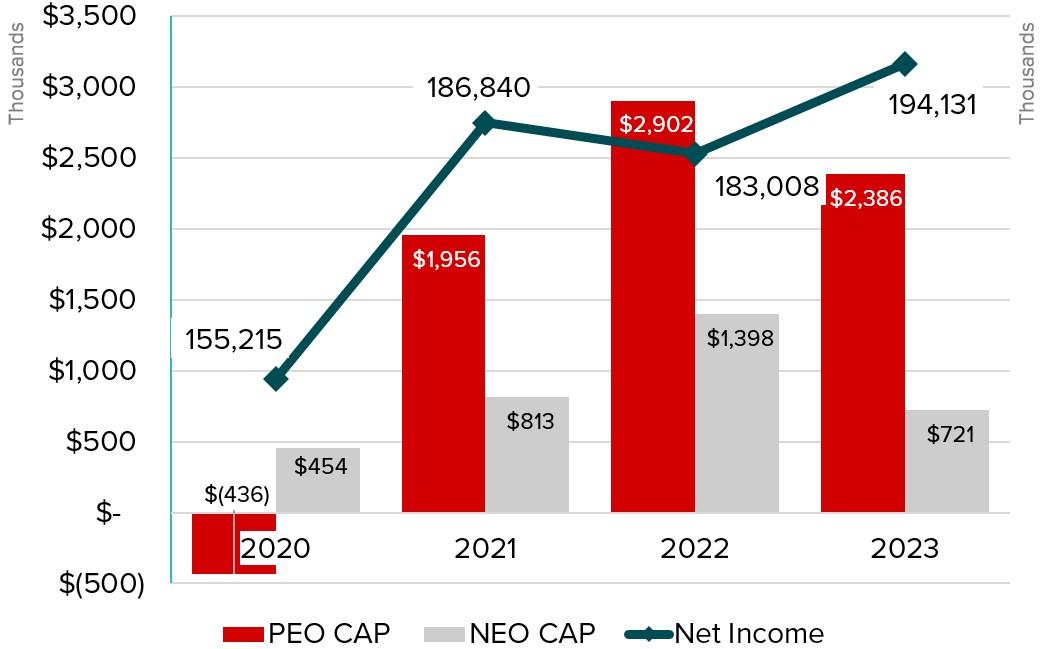

Like net income, ROAE does not appear to have the same correlative relationship with CAP. The pattern in the graphic to the left is similar to the net income graphic above, and our compensation program provides the explanation. While ROAE is a metric we use in our long-term equity incentive awards, it is a secondary metric and does not drive the performance under those awards as much as TSR does. Thus, ROAE contributes less to the CAP to our executives.
We consider the performance measures listed alphabetically below to be the most important measures we used to determine CAP for 2023, as further described in our CD&A within the Annual Cash Incentive Awards and LongTerm Performance-Based Equity Incentive Awards sections.
Our Compensation Committee has designed our pay program to align pay with Company performance. Our executives are rewarded for providing value to shareholders and for performing relative to our 2023 peer group.
Last year was unfortunate for nearly all utility shareholders. The value we provided to our shareholders did not keep pace with our peers, which was reflected in the payouts under our incentive plans. Our one-year TSR of negative 10.1 percent trailed the TSR for our peer group of negative 4.1 percent and the S&P Utility Index of negative 7.1 percent during that same time period. Over the past three years, our cumulative TSR was negative 0.5 percent (as calculated as required by our LTIP) despite a ROAE of 7.7 percent over that same three-year period and an EPS growth rate of 2.2 percent
The results we achieved for our shareholders are consistent with the results under our incentive plans. With respect to our annual cash incentive plan for 2023, despite above target reliability and safety performance equaling our alltime best achievement, we did not meet our operational targets. Our customer satisfaction results and financial performance (based on net income) did not meet our goals. As a result, due to our operational successes and failures, the Board funded our annual cash incentive plan at 77.0 percent of target for 2023. More details are provided in the annual cash incentive plan discussion in this proxy statement.
The long-term performance share units awards that were granted in 2021 pursuant to the LTIP, vested on December 31, 2023. The performance measures associated with those grants were tied to EPS growth, ROAE, and relative TSR. The Company had mixed results over the three-year vesting period with respect to the LTIP metrics, attaining 2.2 percent average EPS growth, 7.7 percent ROAE, but our relative TSR was 9th highest of our 13member 2021 peer group. Based on these results, we did not achieve our LTIP targets, and the LTIP awards paid out at 27.5 percent of target.
The chart below shows the total return on an investment of $100 made over the four-year period reflected in the CAP table and highlights our stock performance as compared to our 2023 peer group using the same methodology required for the CAP table.

Relative to our 2023 peers, our CEO pay is aligned with performance. For the three-year period ending December 31, 2023, our TSR ranked 9th in our 13-member 2023 peer group (assuming reinvestment of dividends), while our CEO’s compensation was the 10th highest of our 2023 peer group (based on the three most recently available years of compensation data as disclosed in the proxy statement summary compensation tables of our peers). In addition, the aggregate compensation provided to our NEOs and the pay multiple of our CEO to the second highest paid NEO both trail the median of our 2023 peer group. For purposes of this discussion in this section, “pay” and “compensation” are calculated as total compensation as disclosed in the Summary Compensation Table, less change in pension value.
The supplemental pay-for-performance charts and tables below reflect relative values for CEO pay and TSR that are expressed as a percentile of the range between the highest and lowest values. Data points within the shaded pay-for-performance alignment band reflect an alignment of pay and performance. Data points to the left and above the band suggest lower pay for higher performance; while those to the right and below the band suggest higher pay for lower performance.
These charts and tables demonstrate our strong alignment of CEO pay and performance over the past three years. Our CEO is generally being compensated at a lower level than the CEOs of most of our 2023 peers, which is aligned with our lower TSR performance. Over the most recent year, our CEO fell on the low end (ranking 10th of 13) of the pay spectrum relative to our peers despite TSR performance that ranked 8th of 13 relative to our peers.

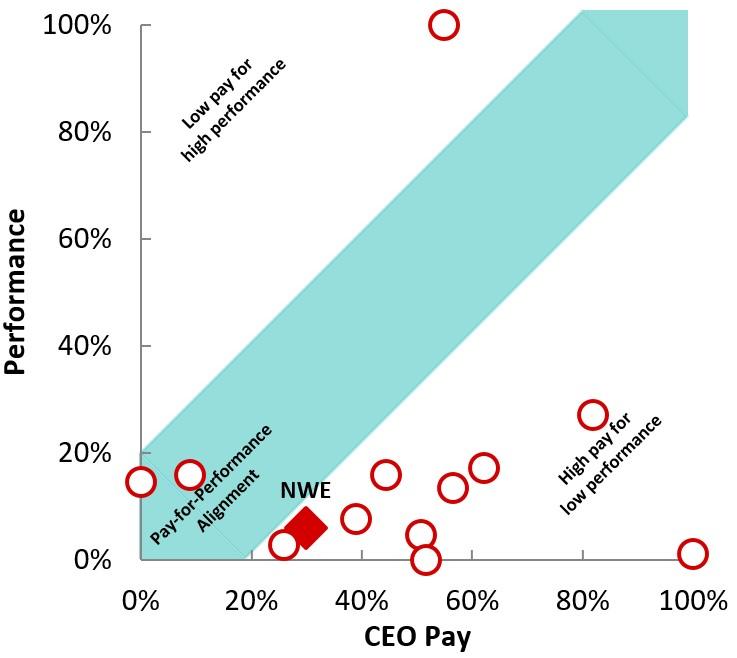
*Relative CEO pay and relative TSR are expressed as a percentile of the range between the highest and lowest values of actual CEO pay and actual TSR.
Source: CEO Pay for the one-year period is the 2022 total compensation and for the three-year period is the 2020-2022 total compensation, as published in the 2021, 2022, and 2023 proxy statement Summary Compensation Tables for each respective company. We have excluded any change in pension value from the total compensation calculation because its inclusion could lead to inconsistent comparisons from company to company based upon differing pension plan provisions, length of employee tenure, and other factors. TSR is from S&P Global Market Intelligence for the one- and three-year periods ended December 31, 2023, and assumes reinvestment of dividends.
As with our CEO’s total compensation package, the total compensation provided to our NEOs as a whole relative to our peers demonstrates a strong pay-for-performance alignment for our shareholders. As shown in the charts below, the aggregate compensation provided to our NEO group lags the median aggregate compensation provided to the NEOs of our 2023 peer group. The summary also depicts that the multiple of our CEO’s compensation compared with our next most highly compensated NEO lags our 2023 peer group median.
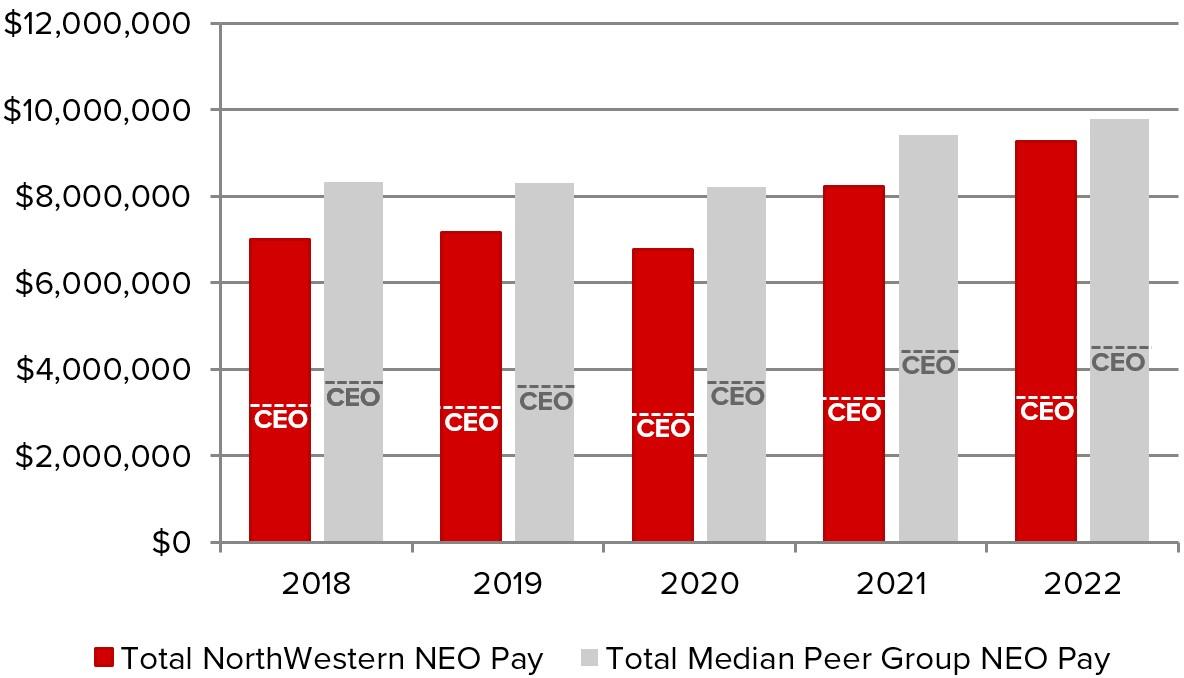
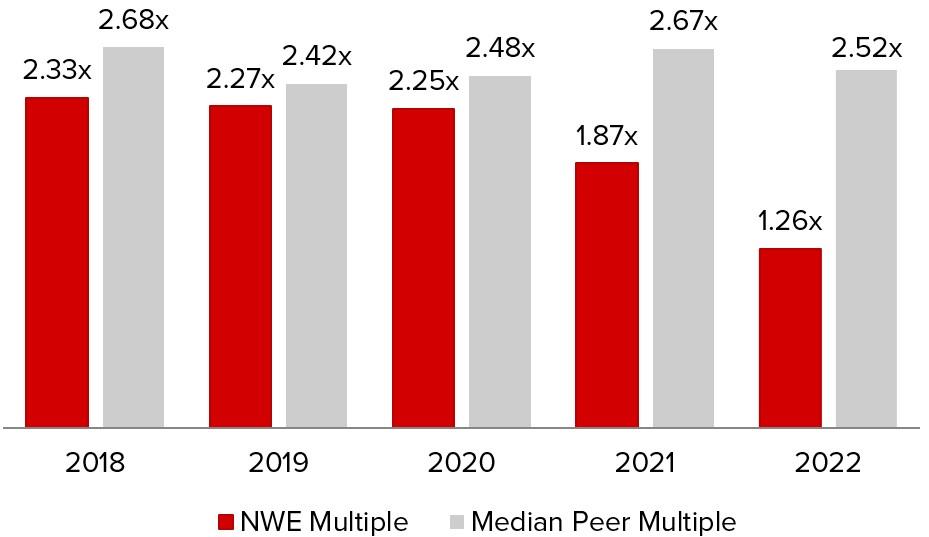
Source: Total compensation (excluding change in pension value) as published in the proxy statement summary compensation table for each respective company. We excluded change in pension value because its inclusion could lead to inconsistent comparisons from company to company based upon differing pension plan provisions, length of employee tenure, and other factors. For companies that had more than five NEOs, our analysis includes only the top five total compensation amounts for such NEO group.
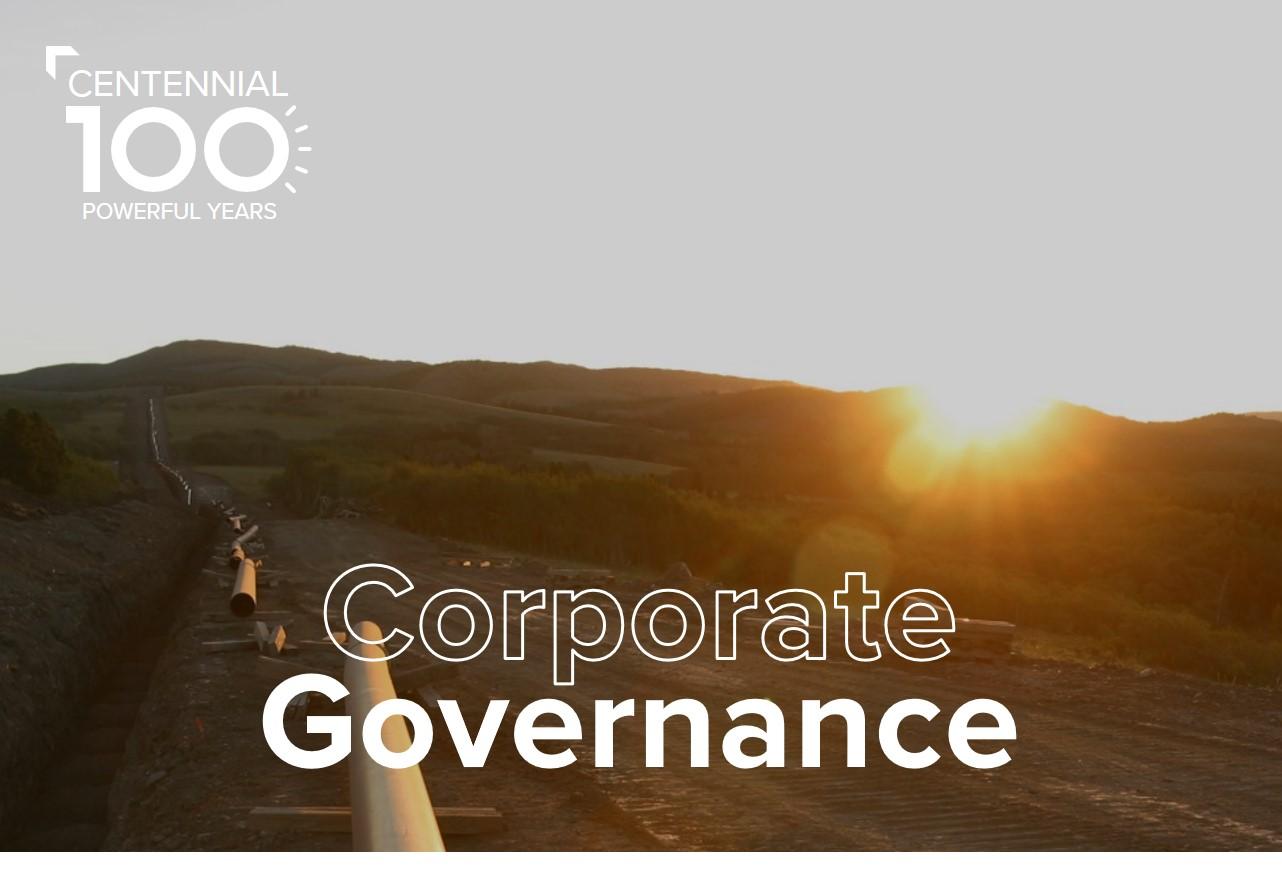

Our Board oversees the business of the Company. It establishes our overall policies and standards and reviews the performance of our management. The Board operates pursuant to our Corporate Governance Guidelines that establish the Company’s corporate governance philosophy and the policies and practices we follow while governing the Company and its affiliates. In addition to our Corporate Governance Guidelines, the principal documents which establish our primary corporate governance practices are listed below and can be found on our website at NorthWesternEnergy.com under About Us / Investors / Corporate Governance
• Certificate of Incorporation
• Bylaws
• Audit Committee Charter
• Compensation Committee Charter
• Governance Committee Charter
• Operations Committee Charter
• Corporate Governance Guidelines
• Code of Conduct and Ethics
• Code of Ethics for the Chief Executive Officer and Senior Financial Officers
• Corporate Political Contributions Policy
• Insider Trading Policy
• Related Persons Transactions Policy
• Complaint Procedures for the Audit Committee of the Board
We are committed to strong corporate governance. As governance standards have evolved, we have enhanced our governance practices as appropriate to best serve the interests of our shareholders. Our commitment to corporate governance best practices has been nationally recognized. Moody’s Investment Services rated our governance practices as 5th best among 50 publicly traded North American utility and power companies in 2019. Our proxy disclosures have been recognized by Corporate Secretary magazine and the NYSE Governance Services. Our 2014 and 2019 proxy statements received Corporate Secretary’s Best Proxy Statement (mid-cap) award, and our 2014 proxy statement also received NYSE's Exemplary CD&A award. We also have been a finalist for Corporate Secretary’s Best Proxy Statement in 2012, 2013, 2016, 2017, and 2018.
• Annual election of all directors.
• Majority vote plus resignation standard in uncontested elections. If a director receives more “WITHHOLD AUTHORITY” votes than “FOR” votes, the director must submit a resignation for the Board to consider.
• Allow shareholders owning 25 percent of our shares to call a special meeting.
• Independent board. Our Board is comprised entirely of independent directors, except our CEO.
• Independent Board Chair.
• Independent Board committees. Each of our Board committees (audit, compensation, governance, and operations) is made up solely of independent directors.
• Committee authority to retain independent advisors. Each of our Board committees has the authority to retain independent advisors, which will be paid for by the Company.
• Code of Conduct and Ethics. We are committed to operating with honesty and integrity and maintaining the highest level of ethical conduct. Our Code of Conduct and Ethics applies to all employees, as well as the Board. We also have a separate Code of Ethics for the Chief Executive Officer and Senior Financial Officers concerning financial reporting and other related matters.
• Robust stock ownership guidelines for executive officers (2x to 6x) and directors (8x up to $1 million).
• Annual Board Evaluation. The Board conducts an annual self-evaluation to increase accountability to shareholders, identify areas for growth, highlight best practices, enhance efficiency, and promote good governance. Periodically, an independent consultant conducts the evaluation.
• Poison pill. We do not have a shareholders rights plan or poison pill.
• Hedging of Company securities. We do not allow our directors, executives, or employees to hedge Company securities.
• Corporate political contributions. We do not make contributions to candidates for political office, political parties, or committees, or political committees organized to advance political candidates.
• Supermajority voting. We do not have supermajority voting provisions in our certificate of incorporation or bylaws, except to approve (or amend provisions concerning) certain business combinations or mergers.
Board members are elected at each annual meeting to serve for approximately one year, until the next annual meeting of shareholders (or until a successor is able to serve). If any director is not elected or is unable to complete his or her term, the Board may choose a substitute to fill the vacant position for the remainder of that term or reduce the number of directors on the Board.
Our bylaws authorize a Board of five to 11 directors, as determined by our Board from time to time. Currently, our Board has ten members. As previously noted, our current independent Board Chair, Dana Dykhouse, will be retiring at the end of his term and is not seeking re-election at our 2024 annual meeting of shareholders. Accordingly, effective upon Mr. Dykhouse’s retirement, we will be reducing the size of the Board to nine members, and have nominated each of the nine individuals identified below for election by shareholders this year.
The Board acts as a coherent team within an environment that allows individual insights to contribute to group consensus. It focuses on long-term Company success and maintains an effective dialogue with management through constructive relationships which provide timely and appropriate deliberation.
Upon the recommendation of the Board, we recently updated our Corporate Governance Guidelines to increase each director’s stock ownership requirements, and six of our nine independent directors already meet the new requirement. For a summary of our stock ownership guidelines, please see the Stock Information / Who owns our stock / Stock Ownership Guidelines section.
We place great importance on continuing education and staying on top of industry trends for employees and our directors. Most of our directors are or have been recognized as a Governance Fellow or Leadership Fellow by the National Association of Corporate Directors (NACD) and six of our eight independent directors are NACD Directorship CertifiedTM .
Our Board is actively engaged both inside and outside of the boardroom. Its members have knowledge and insight that enable them to provide guidance concerning our business, with particular focus on corporate strategy, ESG matters, operational and financial performance, succession planning, executive compensation, risk management and operating performance. They seek and participate in learning opportunities to stay abreast of the latest industry and corporate governance developments affecting their role as directors.
Most Board meetings, including the annual meeting, are held throughout our service territory. This benefits not only our board members, but employees and community leaders as well. Meeting in the communities we serve allows our Board to engage with employees, shareholders, and community leaders, be part of the Company culture, and gain a broader understanding of various areas of the Company by affording non-management employees a chance to attend board meetings, interact with our directors, and highlight their work through in-person presentations. These opportunities are intended to educate our Board about the communities we serve, live in, and work in, and the concerns and successes of our employees.
Our Board considers attendance at Board and Shareholder meetings and participation of directors in determining continued service on the Board. Attendance and participation are reviewed as part of the annual evaluation process. The Board held eight meetings in 2023. Each of our directors attended 100 percent of the meetings of the Board and of each committee on which he or she served. The Company encourages its directors to attend the annual meeting of shareholders and expects them to attend whenever reasonably possible. At our last annual meeting of shareholders in April 2023, all directors were in attendance for the virtual meeting.
Our Board values the diversity of its members because varied perspectives expand the Board’s ability to provide relevant guidance to our business. When considering director nominees, we strive to identify nominees that will provide insight from a number of perspectives, with equal importance placed on gender, age, ethnicity, skills, background, experience, and location of residence. 2020 Women on Boards previously has recognized our Board’s gender diversity. As depicted below, our slate of nine director nominees demonstrates diversity.

Our individual Board members also have varied expertise and bring extensive professional experience from both within and outside our industry. This diversity of experience provides our Board with a vast collective skill set which is advantageous to the Board’s oversight of our Company. While the industry-specific expertise possessed by certain Board members is essential, we also benefit from the viewpoints of our directors with expertise outside our industry. Following is a high level overview of the skills and backgrounds of our director nominees.
Our Board requires certain competencies for each of its members — strategic executive leadership; integrity and ethics; and board service and governance. Although not included in the skills matrix on the next page, our Board believes that each of our director nominees possess the following qualifications:

Strategic Executive Leadership. Experience as an executive officer and/or senior leader in business or public service helps us develop strategic direction, drive change and growth, and enable a healthy corporate culture.

Integrity and Ethics. Unblemished integrity and ethics are key to our directors representing the interests of shareholders and our Company before a wide array of audiences. We believe our directors must reflect our corporate values.

Board Service and Governance. Experience on other public, private and non-profit boards provides essential comparison points for our operations and governance.
Our skills matrix reflects characteristics and competencies that have been important in the Board’s recent corporate strategy discussions areas of focus, candidate searches, and the Company vision. The Board rates its members with respect to each of these skills using a two-tiered ranking system.
Our two-tiered ranking system emphasizes the importance of each director by identifying primary areas of expertise and recognizing other areas of proficiency. This system immediately illustrates the unique diversity and skills our Board has worked hard to assemble, while also depicting the whole value brought to the Board by its members.
Financial Executive. High level, public company financial experience (principal financial officer, principal accounting officer, or public accountant or auditor) or a background in strategic financial and capital markets assists board oversight of our financial reporting, internal controls, and capital structure.
Utility Operations. Executive operational leadership experience in the energy or utility industry or in-depth knowledge of electric and natural gas transmission and distribution systems, energy markets, or electric generation facilities enables effective direction of operational improvements.
Regulatory and Public Policy. Positions in the public utility regulatory arena, experience in other regulated industries or areas, and/or a public policy background involving interactions with the government, policymakers, and government agencies helps guide our regulated utility strategies.
Risk Management / Oversight. Experience identifying, assessing, managing, and mitigating business and financial risk factors – including environmental, social, and governance (ESG) – and/or management responsibility of enterprise risk management enhances our Board’s oversight capabilities.
Human Capital Management. Leadership experience with attracting, motivating, and retaining high-performing employees helps us enhance our work environment through workforce diversity, worker health and safety, compensation, and company culture.
Technology and Security. Understanding business and operations technology – including financial systems, grid operations, critical infrastructure, and customer information systems – and the potential for physical and cyber threats to these systems helps guide our strategy and development.
Innovation and Transformation. Experience leading or managing change and driving innovation within an organization assists us as we evolve with our industry.
Customers and Communities. Direct experience within the local business and political environment of our customer and employee base permits our Board to understand the needs and interests of our customers and communities. Expertise in marketing and customer service helps oversee the public image we cultivate.

Denotes extensive experience, knowledge, and/or expertise and indicates a primary qualification supporting the Director’s nomination.































































Denotes an area in which the director has a demonstrated proficiency and indicates an ancillary qualification supporting the director’s nomination.
Nasdaq Rule 5605 requires each Nasdaq-listed company to either have a diverse board or explain why it does not. To be a diverse board, Rule 5605 requires the board to have two “diverse” directors by the time of the Company’s annual meeting in 2025.
Nasdaq Rule 5606 requires each Nasdaq-listed company to disclose its board diversity on an annual basis pursuant to a template Nasdaq has provided for such disclosure that may not be modified by the Company. Although Rule 5606 mandates a specific template for the form of required disclosure, it also allows a company to provide additional diversity disclosure.
Nasdaq opted to follow the United States Census Bureau’s classifications of underrepresented demographics to define diversity. While Nasdaq’s use of a common standard for diversity likely will lead to uniform disclosures, we believe the classifications neglect various underrepresented minorities in the United States.
To be “diverse,” Rule 5605 requires (a) at least one director who self identifies as female, and (b) at least one other director who self-identifies as an underrepresented demographic. The underrepresented demographics include: African American or Black; Alaskan Native or Native American; Asian; Hispanic or Latinx; Native Hawaiian or Pacific Islander; LGBTQ+; and anyone identifying with two or more demographics. We agree with these classifications. However, Nasdaq’s White classification (which is not an underrepresented demographic) includes a person having origins in the Middle East or North Africa. While the Nasdaq and the U.S. Census Bureau do not include Middle Eastern or North African individuals as an underrepresented demographic, other classification systems do.
Based on the Nasdaq Rule 5605, our current Board includes four directors who self-identify as females and one who is African American or Black. Thus, as shown in the diversity matrix below, we meet the Rule’s diversity requirement of two diverse directors.
Our nine director nominees currently serve on our Board and have been nominated for election to a one-year term on our Board. The biographies of these individuals follow.
Biography: Mr. Bird is the President and Chief Executive Officer of NorthWestern Energy (since January 2023). Prior to that he served as NorthWestern’s President and Chief Operating Officer (February 2021 to December 2022) and Chief Financial Officer (December 2003 to February 2021).
Mr. Bird is a member of the Board of Directors of Energy Insurance Mutual Limited (since January 2023), a provider of insurance and risk management services to utilities and the energy services industry. He also shares his leadership and financial experience as a member of the Board of Directors for Feeding South Dakota (Treasurer), Sioux Empire United Way (2021 Campaign Chair), North Central Electric Association (Past President), and University of Idaho Utility Executive Course. Previously, he served on the Federal Reserve Board 9th District Advisory Council.
Why have we nominated Mr. Bird? Our Board concluded that Mr. Bird is qualified to serve as a Board member because of his extensive experience with our Company over the past twenty years in three, high-profile leadership positions, including President and Chief Executive Officer, President and Chief Operating Officer, and Chief Financial Officer. While at NorthWestern he has led our finance function, our utility operations, and our enterprise risk management function. He also lives in our service territory, providing a personal understanding of issues facing our customers and communities. In addition, his leadership roles at the Company demonstrate expertise in public utility regulatory matters and technology and security issues and proficiencies in human capital management and innovation and transformation.
Anthony Clark Director since 2016 Age 52 Senior Advisor, Wilkinson Barker; former Commissioner, FERC and NDPSC
Biography: Mr. Clark is a Senior Advisor with Wilkinson Barker Knauer, LLP (since 2016), a law firm providing advice and representation over a range of industries including energy, emerging technologies, media, and telecommunications. Prior to that he had a distinguished career as a public servant, serving as a Commissioner with the Federal Energy Regulatory Commission (2012-16) and a Commissioner with the North Dakota Public Service Commission (2001-12, including five years as its Chair). While serving as a Commissioner in North Dakota, Mr. Clark was an active member of the National Association of Regulatory Utility Commissioners (NARUC), serving as its President and in other prominent NARUC roles.
Why have we nominated Mr. Clark? Our Board concluded that Mr. Clark is qualified to serve as a Board member because of his 15+ years of experience as a federal and state utility regulator. He has in-depth knowledge of the regulatory, public policy and market dynamics that impact current and future opportunities for electric and natural gas utilities. His extensive experience at the nexus of complex federal and state jurisdictional issues, including the development of electricity markets, market oversight and enforcement and permitting of large energy infrastructure projects is important for our Company. In addition, as a former resident in and adjacent to our South Dakota service territory, he brings a personal understanding of issues facing our customers and communities.

Skill Highlights:
Financial Executive
Utility Operations
Regulatory and Public Policy
Risk Management / Oversight
Technology and Security
Customers and Communities
Non-Independent Director
NorthWestern Committees: None
Other Public Boards: None

Skill Highlights
Utility Operations
Regulatory and Public Policy
Independent Director
NorthWestern Committees
Compensation, Governance
Other Public Boards
None

Skill Highlights Regulatory and Public Policy Innovation and Transformation
Independent Director
NorthWestern Committees Compensation, Governance
Other Public Boards Midland States Bancorp, Inc.
Biography: Ms. Edwards is the former Chief Strategy Officer for MasTec (NYSE: MTZ), a Fortune 500 utility infrastructure company (2022). She previously served as President and Chief Executive Officer of INTREN, a subsidiary of MasTec (2020-21). Prior to that, her utility regulatory background includes positions as an energy and utilities regulatory partner at the Quarles & Brady law firm (2018-20) and as a Commissioner on the Illinois Commerce Commission (2013-17). In 2016, she was appointed by President Barack Obama and U.S. Secretary of Transportation Anthony Foxx as Co-Chair of the U.S. Department of Transportation’s Voluntary Information-Sharing System Working Group, where she provided recommendations on the protection of proprietary and security-sensitive information.
Ms. Edwards is on the board of directors of (a) Midland States Bancorp, Inc. (Nasdaq; MSBI) a community-based financial holding company headquartered in Effingham, Illinois, and the sole shareholder of Midland States Bank, serving on its risk and trust committees; and (b) SouthWest Water Company, an American-owned regulated water and wastewater utility serving over half a million residential and business customers in seven states (AL, CA, FL, LA, OR, SC, and TX).
Why have we nominated Ms. Edwards? Our Board concluded that Ms. Edwards is qualified to serve as a Board member because of her utility regulatory expertise and her leadership regarding innovation and transformation. Her experience as a state regulatory commissioner and a lawyer concerning state and federal regulatory strategies and innovation will help our Board oversee our regulatory relationships, and her leadership driving change as a chief strategy officer will help us evolve with our industry. In addition, through her career, she has developed proficiencies in the areas of utility operations, human capital management, and technology and security.

Skill Highlights
Technology and Security
Innovation and Transformation
Customers and Communities
Independent Director
NorthWestern Committees
Audit, Operations (Chair)
Other Public Boards
None
Biography: Mr. Horsfall is the Chief Executive Officer at Sparq, Inc., a sports-centric, artificial intelligence (AI) enabled game publisher which enables college athletes and universitiesto benefit from the latest name, image, likeness (NIL) policy now governing college sports. He also is the Managing Partner (since 2019) of Red Surfboard, LLC, a business consultant practice focused on the sports, energy, agriculture, and consumer technology sectors. He also founded VoterVac (since 2015), an active marketing agency that takes a consumer-packaged goods, direct-response approach to targeting political voters.
He sits on the board of advisors for Huvr, Inc., a virtual marketplace and technology platform connecting travelers from around the world to local geographic experts in global destinations real time.
Why have we nominated Mr. Horsfall? Our Board concluded that Mr. Horsfall is qualified to serve as a Board member because of his expertise in the areas of technology and security, innovation and transformation, and customers and communities. The expertise he has developed over his career brings an entrepreneurial intellect to our Board and an intense understanding of leading edge technology and innovation in the energy and other sectors. Mr. Horsfall bolstered his understanding of technology and security issues by obtaining a CERT Certificate in Cybersecurity Oversight (issued by the CERT Division of the Software Engineering Institute at Carnegie Mellon University) in 2017 and attending the MIT Sloan + CSAIL Artificial Intelligence: Implications for Business Strategy Program. His marketing background (current roles at Red Surfboard and VoterVac and prior prominent marketing roles at Universal Lubricants, Lycos, and Valvoline) provides valuable insights for our interactions with the customers and communities we serve. In addition, Mr. Horsfall is financially literate under Nasdaq rules and has a developed proficiency in risk management and oversight.
Biography: Ms. Ide is the Chief Executive Officer of Ide Energy & Strategy (since 2011), an energy and strategy consulting company. Previously she served as the interim Chief Executive Officer of the Big Sky Chamber of Commerce (2016) and Senior Counsel at Idaho Power Company.
She is the lead independent director of the Board of Directors of Nxu, Inc. (Nasdaq: NXU, formerly Atlis Motor vehicles) (since 2021), an electric vehicle battery and charging innovator, and on the Board of Directors of TechnoSylva, a private equity backed software company helping utilities and fire agencies with wildfire prediction and risk analysis. She previously served (2021-22) as a director of the CleanTech Acquisition Corporation (formerly Nasdaq: CLAQ) (until its merger with Nauticus Robotics, Inc., in September of 2022) and the Big Sky Chamber of Commerce. She was appointed to Montana’s Clean Power Plan advisory council and as an ambassador for the Clean Energy Education & Empowerment Initiative, a U.S. Dept. of Energy, Massachusetts Institute of Technology and Stanford University collaboration.
Why have we nominated Ms. Ide? Our Board concluded that Ms. Ide is qualified to serve as a Board member because of her experience and insight as a strategic consultant in the utility and energy industry and her involvement with related innovative and developing technologies. She is experienced in risk management and oversight (particularly ESG matters) and how companies integrate sustainability into their strategies and a national speaker on matters including how corporations balance climate solutions with business requirements. As a resident of our service territory, she also brings a local perspective on relevant regulatory, political, and community issues. In addition, she has demonstrated proficiency in the areas of utility operations and regulatory and public policy matters.
Retired Executive Vice President and Group President, Xcel Energy, Inc.
Biography: In 2020, Mr. Larson concluded a 38-year career with Xcel Energy, Inc., an electric and natural gas utility holding company, retiring as its Executive Vice President and Group President, following a series of progressive leadership roles with the company. He directed overall operations for Xcel Energy, including overseeing $45 billion of assets, a $5 billion annual capital budget, $3.5 billion annual operating and fuel budget, and 8,000 employees, as well as providing strategic direction and leadership to the company’s generation, transmission, distribution, gas, energy trading and supply chain businesses.
He currently serves on the board of directors of Adolfson & Peterson Construction Company, a construction company, and Quanta Services West, a utility construction company and subsidiary of Quanta Services. He previously served on the board of directors of Regions Hospital, a hospital based in St. Paul, Minnesota, providing specialty care across the Twin Cities and western Wisconsin.
Why have we nominated Mr. Larson? Our Board concluded that Mr. Larson is qualified to serve as a Board member because of his expertise and extensive career leading all facets of utility operations for Xcel Energy. Due to his experience, he possesses a keen understanding of the risks facing utilities and how to oversee, manage, and mitigate those risks, and he was responsible for interfacing with Xcel Energy’s communities, including South Dakota. His involvement in all areas of the operations of a large utility has developed proficiencies in the areas of finance, regulatory and public policy, human capital management, technology and security, and innovation and transformation.

Skill Highlights
Risk Management / Oversight
Innovation and Transformation
Customers and Communities
Independent Director
NorthWestern Committees
Compensation, Governance
Other Public Boards
Nxu, Inc.

Skill Highlights
Utility Operations
Risk Management / Oversight
Customers and Communities
Independent Director
NorthWestern Committees
Audit, Operations
Other Public Boards
None

Skill Highlights
Financial Executive
Utility Operations
Risk Management / Oversight Technology and Security
Independent Director
NorthWestern Committees Audit (Chair), Operations
Other Public Boards
AltaGas, Ltd.
PPL Corporation
Biography: Ms. Sullivan is the retired Executive Vice President and Chief Financial Officer (CFO) of American Water Works Company, Inc., the largest publicly traded U.S. water and wastewater utility company (2014-19). There, she also led operational responsibilities for technology, cyber and physical security, supply chain, research and development, and environmental compliance. Prior to that, Ms. Sullivan served in progressive leadership roles at the Edison International Companies for 22 years, ascending to Senior Vice President and CFO of Southern California Edison (2009-14). Early in her career, she was a Senior Auditor with Arthur Andersen, LLP. Ms. Sullivan has been a Certified Public Accountant since 1991 (inactive) and a Certified Management Accountant since 1995.
Ms. Sullivan is a member of the Board of Directors of PPL Corporation, a regulated energy company (NYSE: PPL), serving on its finance and audit committees (since January 2023) and AltaGas Ltd., a North American energy infrastructure business (TSE: ALA), serving on its audit (chair since March 2022) and human resources and compensation committees. She previously served on the Financial Advisory Board of the U.S. Environmental Protection Agency and other non-profit boards supporting underserved communities.
Why have we nominated Ms. Sullivan? Our Board concluded that Ms. Sullivan is qualified to serve as a Board member because of her experience as a financial executive, extensive expertise in the utility industry, and expertise with technology, cyber security and risk management oversight. Through her experience as an external auditor of utilities and progressive leadership roles (including chief financial officer) for utilities, she has developed expertise in financial reporting, internal controls, and capital structure, as well as risk management and oversight. Her experience also led to an intimate understanding of utility operations. She is an audit committee financial expert under SEC standards and financially literate under Nasdaq rules. Her career has led to proficiencies in matters concerning regulatory and public policy, human capital management, technology and security, innovation and transformation, and customers and communities.

Skill Highlights
Utility Operations
Human Capital Management Technology and Security Innovation and Transformation
Independent Director
NorthWestern Committees Compensation (Chair), Operations
Other Public Boards Anterix, Inc.
President, Feasible Management Consulting
Biography: Ms. Yazdi is the President of Feasible Management Consulting, specializing in strategic consulting within the utility/power, telecommunications, electric transportation/ mobility, and renewable energy industries (since 2012). She is the former Senior Vice President and Chief Information Officer (1997-2012) of Edison International and Southern California Edison.
Ms. Yazdi is on the board of Anterix, Inc. (Nasdaq: ATEX), a leading wireless telecommunications company, and chairs its compensation committee. She is the Chair of the Energy Advisory Board for Prologis (NYSE: PLD), helping one of the world’s largest logistic companies navigate new ventures in renewable energy, mobility, and sustainability. She also is a member of the Advisory Board of Infosys Corporation and serves in a strategic advisory role for Energy Capital Ventures.
Why have we nominated Ms. Yazdi? Our Board concluded that Ms. Yazdi is qualified to serve as a Board member because of her executive experience with a large public utility and expertise in the areas of human capital management, technology and security, and innovation and transformation. As a nationally recognized former chief information officer, she possesses cyber security expertise with extensive experience leading transformation and technology implementation, such as smart meter and smart grid programs. In the utility/power industry, she was charged with setting strategies and leading people to achieve greater growth, efficiency and performance. In addition, through her accomplished career, she has developed proficiencies in the areas of regulatory and public policy and risk management and oversight.
Jeffrey Yingling Director since 2019 Age 64
Biography: Mr. Yingling is a Co-Founder and General Partner of Energy Capital Ventures, a strategic venture fund formed to invest in early stage energy companies (since 2020). Immediately prior to forming this fund, Mr. Yingling concluded an investment banking career with over 30 years involved in the power and utility sector. Most recently, he served as Senior Advisor in Investment Banking at Guggenheim Securities, specializing in power, energy and renewables (2017-20). Prior to that, he held various roles at J.P. Morgan Securities, including as Managing Director and Head of Midwest Investment Banking, and at Morgan Stanley, Dean Witter Reynolds, and The First Boston Corporation.
Mr. Yingling is a member of the board of directors of LendingPoint Consolidated, Inc., a data and technology platform that originates unsecured personal loans both direct to consumer online and at the point of sale . He previously served on the board of directors of Navigant Consulting, Inc. (formerly NYSE: NCI) (2018-19), before it was acquired by another company.
Why have we nominated Mr. Yingling? Our Board concluded that Mr. Yingling is qualified to serve as a Board member because of his 35+ years of financial, managerial, and strategy experience acquired from senior executive and management-level positions at leading international financial institutions and in the professional service sector, particularly with respect to the power and energy industry. He is an audit committee financial expert under SEC standards and financially literate under Nasdaq rules. Mr. Yingling’s investment banking career and current position with Energy Capital Ventures has also provided him with expertise with respect to innovations and transformations occurring within the utility industry and managing the associated risks, as well as a developed proficiency concerning technology issues.

Skill Highlights
Financial Executive
Risk Management / Oversight
Innovation and Transformation
Independent Director
NorthWestern Committees
Audit, Governance (Chair)
Other Public Boards
None
Our Governance Committee leads the Board through a director succession planning process. It initiated the process to allow for a smooth and gradual transition from our directors who were nearing 15 years of service to new directors with the right skills for our Company’s future, while preserving the culture of the Board.
The process includes an ongoing review of the individual skill sets of current members and consideration of additional skills that could be beneficial for the Board in the future, with a particular focus on the Company’s strategy and emerging risks. The Governance Committee also reviews the tenure of each existing Board member and discusses potential timing for inviting new members to join the Board. The director succession planning process has proved beneficial with the retirement of nine directors since April 2016. This process has allowed us to gradually refresh each of our independent directors in an orderly manner.
The Governance Committee reviews the director succession planning process periodically to meet the Board’s and the Company’s ongoing needs.
Our Governance Committee evaluates each director candidate to determine whether the Board should recommend such candidate as a director nominee. In considering new individuals for nomination as directors, the committee is authorized to engage third-party advisers, including search firms to assist in the identification and evaluation of candidates if necessary, however, typically solicits recommendations from its current directors.
The Company’s goal is to maintain a diverse Board that operates cohesively and challenges management in a constructive way. The Governance Committee has not established specific minimum qualifications for director nominees or set forth specific qualities or skills that it believes are necessary for one or more directors to possess. Instead, in considering director candidates, the committee considers the diversity of our Board (without placing
disproportionate emphasis on any one factor, whether gender, age, ethnicity, skills, background, or location of residence) and takes into account whether the Board as a whole has the skills, experience, and background that add to and complement the range of skills, experience, and background of each director based on the following: integrity, accomplishments, business acumen, experience and education, commitment, representation of shareholders, industry knowledge, independence, and financial literacy. With the exception of the Company’s CEO, all of our directors are independent, as required by our Corporate Governance Guidelines.
When nominating persons to serve on our Board, the Governance Committee considers individuals who can add value to the strategic policymaking and oversight responsibilities of the Board. A director’s ability and available time to contribute to the Board and his or her participation on other boards also are considered because we believe these factors enhance the quality of the Board’s decision-making, its oversight of management, and our business overall. The committee believes that the nominees for election at this year’s annual meeting collectively possess the experience, skills, and attributes necessary to lead the Company to a long and successful future.
Our Governance Committee also has the responsibility for considering nominees for directors properly recommended by shareholders. A shareholder who wishes to submit a candidate for consideration at the annual meeting of shareholders must notify our corporate secretary in writing not less than 90 days and no more than 120 days prior to the first anniversary date of the preceding year’s annual meeting. The shareholder’s written notice must include information about each proposed nominee, including name, age, business address, principal occupation and other information required in proxy solicitations. The notice also must include the shareholder’s name and address, the number of shares of our common stock beneficially owned by the shareholder and any arrangements or understandings between the nominee and the shareholder. The shareholder also must furnish a statement from the nominee indicating that the nominee wishes and is able to serve as a director.
The manner in which the Governance Committee evaluates candidates recommended by shareholders is generally the same as candidates from other sources. It also will seek and consider information concerning the relationship between the recommending shareholder and the candidate to determine if the candidate can represent the interests of all shareholders. The Governance Committee will not evaluate a candidate recommended by a shareholder unless the shareholder notice states that the potential candidate has indicated a willingness to serve as a director, to comply with the expectations and requirements for Board service publicly disclosed by NorthWestern Energy, and to provide all of the information required to conduct an evaluation.
The Board has in place a Majority Plus Resignation Vote Policy for the election of directors. The policy provides that, in an uncontested election, any nominee for director who receives a greater number of “WITHHOLD AUTHORITY” votes from his or her election than votes “FOR” such election (or a Majority Withheld Vote) shall promptly offer his or her resignation following certification of the shareholder vote.
Under this policy, the Governance Committee shall promptly make a recommendation to the Board regarding the resignation offer and possible responses based on the circumstances that led to the Majority Withheld Vote, if known. The Board must act on the Governance Committee’s recommendation within 90 days following certification of the shareholder vote. Thereafter, the Board will promptly disclose its decision-making process and decision regarding whether to accept the director’s resignation offer (or the reason(s) for rejecting the resignation offer, if applicable) in a Current Report on Form 8-K.
Any director who tenders his or her resignation pursuant to this policy shall not participate in the Governance Committee’s recommendation or Board’s action regarding whether to accept the resignation offer. However, if each member of the Governance Committee receives a Majority Withheld Vote at the same election, then the independent directors who did not receive a Majority Withheld Vote shall appoint a committee among themselves to consider the resignation offers and recommend to the Board whether to accept them. If the only directors who did not receive a Majority Withheld Vote in the same election constitute three or fewer directors, all directors may participate in the action regarding whether to accept the resignation offers, with each director recusing himself or herself from consideration of his or her resignation offer.
Our Board has placed the responsibilities of the Board Chair with an independent member of the Board. We believe this provides optimum accountability between the Board and our management team. In our view, it is beneficial to have an independent Chair whose sole responsibility is leading our Board members as they provide leadership to our executive team.
Following Mr. Dykhouse’s retirement announcement on February 14, 2024, our Board members elected Ms. Linda Sullivan, current Audit Committee Chair, to serve as Board Chair after our 2024 annual meeting. The Board members selected Ms. Sullivan because of her experience as an executive in the utility industry, her financial expertise, and her active participation on our Board, particularly with respect to her current role leading our Audit Committee since 2019.
Our Board Chair is responsible for providing leadership and facilitating communication among the directors; setting the Board meeting agendas in consultation with the CEO; presiding at Board meetings, executive sessions and shareholder meetings; and serving as an ex-officio member of each Board committee. This delineation of duties allows the CEO to focus his attention on managing the day-to-day business of the Company. We believe this structure provides strong leadership for our Board, while positioning our CEO as the leader of the Company in the eyes of our customers, employees, and other stakeholders.
Each regularly scheduled Board and committee meeting provides the opportunity for executive sessions of the non-employee directors without management in attendance. These executive sessions are chaired by our Board Chair or the independent Chair of the respective committee.
All of our directors are independent, with the sole exception of our CEO. A director is considered independent if he or she qualifies as “independent” under (1) Nasdaq standards and any applicable laws and (2) he or she (a) has never been an employee of the Company or any of its subsidiaries, (b) is not a close relative of any management employee of the Company, (c) provides no services to the Company, and is not employed by any firm providing major services to the Company, other than as a director, and (d) receives no compensation from the Company other than director fees and benefits. The Board’s determination of independence is based upon a review of the questionnaires submitted on an annual basis by each director, the Company’s relevant business records, publicly available information and the applicable SEC and Nasdaq requirements.
Based on its review, the Board determined that each of the existing non-employee directors (Messrs. Clark, Horsfall, Larson and Yingling and Mses. Ide, Sullivan, Yazdi, and Edwards) is independent as defined in the listing standards noted above. Our final director, Mr. Bird, is an executive officer of the Company and, therefore, is not independent.
In addition to the independence assessment of our 2024 slate of nominees, our Board reviewed the family relationships of our current directors and executive officers to determine the existence of any family relationships not more remote than first cousins and determined that no such family relationships exist, except current directors Dana Dykhouse and Jan Horsfall are first cousins.
We have four Board committees composed solely of independent directors, each with a different independent director serving as chairperson of the committee. Our Board committees are:
• Audit;
• Nominating and Governance;
• Human Resources (Compensation); and
• Safety, Environment, Technology and Operations (Operations).
Our Board holds its committee meetings sequentially (i.e., committee meetings do not overlap with one another). As a result of holding sequential meetings, each Board member is able to attend each committee meeting. We believe this practice is highly beneficial to our Board as a whole and the Company in general because each Board member is aware of the detailed work conducted by each Board committee. This practice also affords each of our Board members the opportunity to provide input to the committee members before a committee reaches any conclusions.

“The Audit Committee has an uncompromising focus on the integrity of financial information and a robust approach to enterprise risk management. To help ensure direct and candid communication, the committee meetings have broad participation by Company management and the Board. In addition, the committee conducts private and separate executive sessions with the chief audit and compliance officer, Company management, external auditors and the committee itself.”
Linda Sullivan, Audit Committee Chair
The Primary Responsibilities of our Audit Committee are to provide oversight of:
• The Company’s accounting and financial reporting processes;
• The audit and integrity of the Company’s financial statements;
• The Company’s compliance with legal and regulatory requirements;
• The independent auditor’s qualifications and independence;
• The Company’s internal audit function and independent auditors;
• The Audit Committee Report for the Company’s proxy statement;
• Significant financings and dividend policy and dividend payment recommendations;
Members
Linda Sullivan (Chair)
Jan Horsfall
Kent Larson
Jeffrey Yingling
Meetings in 2023
5
• Enterprise risk management, business continuity, and the Company’s compliance with legal and regulatory requirements; and
• Such other duties as directed by the Board.
The Board determined that each member of the Audit Committee is financially literate within the meaning of Nasdaq listing standards and is independent, as defined in the listing standards of the Nasdaq and the SEC regulations. The Board also determined that Ms. Sullivan qualifies as an audit committee financial expert under the applicable SEC regulations.
The Audit Committee Report is included on page 13 of this proxy statement.
The Audit Committee operates pursuant to a charter that is reviewed annually and was last amended in October 2023. The Charter is available on our website at NorthWesternEnergy.com under About Us / Investors / Corporate Governance

“Corporate governance is paramount at NorthWestern. We believe strong governance leads to investor and other stakeholder confidence in the Company and are proud of the national recognition our governance practices continue to receive.”
Jeffrey Yingling, Governance Committee Chair
Members
Jeffrey Yingling (Chair)
Anthony Clark
Britt Ide
Sherina Edwards
Meetings in 2023 5
Our Nominating and Governance Committee (Governance Committee) primary responsibilities are:
• Nominating and qualifying Board members, including recommending nominees for the Board and succession planning regarding current Board members;
• Determining the composition of the Board and its committees;
• Overseeing public image, including ESG and diversity and inclusion matters;
• Reviewing public policy and public image matters, including government relations and community support;
• Monitoring a process to assess Board effectiveness; and
• Developing and implementing corporate governance principles.
The Governance Committee also reviews and oversees our position on corporate social responsibilities, such as public policy issues that significantly affect us, and our shareholders, customers, and other key stakeholders.
Each member of our Governance Committee meets the independence requirements under the Nasdaq corporate governance listing standards.
The Governance Committee operates pursuant to a charter that is reviewed annually and was last amended in October 2023. The Charter is available on our website at NorthWesternEnergy.com under About Us / Investors / Corporate Governance.
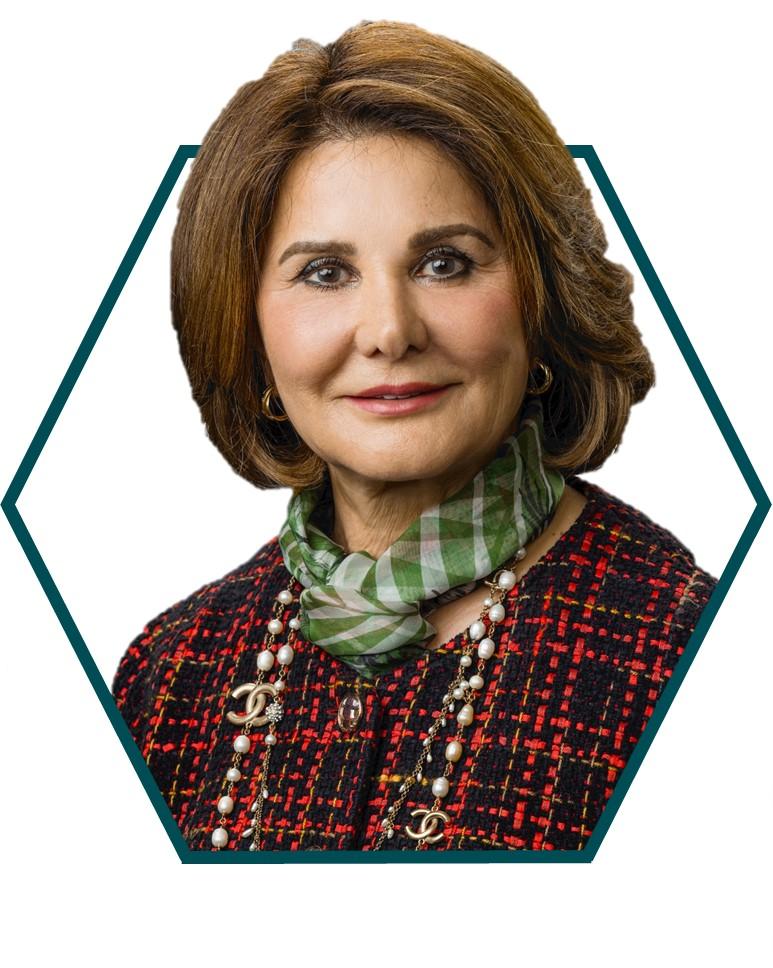
“Our compensation philosophy is designed to align the interests of our shareholders, customers, employees, and regulators. But, the pandemic has had a profound and lasting impact on how we work. We demonstrate care for our employees by providing flexibility and meaningful work in an equitable workplace with competitive compensation and offering development, engagement, health, and safety.”
Mahvash Yazdi, Compensation Committee ChairMahvash Yazdi (Chair)
Anthony Clark
Britt Ide
Sherina Edwards Meetings in 2023 6
Our Human Resources Committee (Compensation Committee) acts on behalf of and with the concurrence of the Board with respect to:
• Compensation, benefits and other employment matters for executives;
• Stock-based compensation plans for employees;
• The election and appointment of executive officers and other officers;
• The assessment of the performance of the CEO;
• Succession planning for the CEO, executives and other officers; and
• The compensation of non-employee members of the Board.
As discussed in the Compensation Discussion and Analysis section of this proxy statement, the Compensation Committee also considers input on executive compensation from our CEO and CFO. Our Compensation Committee has delegated some of the administration of our executive compensation and benefits plans to our Compensation and Benefits Department.
Each member of our Compensation Committee is a “non-employee” director within the meaning of Rule 16b-3 under the Exchange Act and independent under the standards of the Nasdaq.
The Compensation Committee Report is included at page 35 of this proxy statement.
We call this committee the Human Resources Committee because its responsibilities extend beyond the realm of compensation to other human resources and employee issues. The Human Resources Committee operates pursuant to a charter that is reviewed annually and was last amended in October 2023. The Charter is available on our website at NorthWesternEnergy.com under About Us / Investors / Corporate Governance
The Compensation Committee has directly retained WTW as its independent, external compensation consultant for the last several years. WTW is an independent consulting firm that provides services in the areas of executive compensation and benefits and has specific expertise in evaluating compensation in the utility industry. WTW reports directly to the Compensation Committee and, at the Compensation Committee’s request, provides an annual evaluation and analysis of trends in both executive compensation and director compensation. WTW also evaluates other compensation issues at the direct request of the Compensation Committee.
The Compensation Committee evaluated the following six factors to assess independence and conflicts of interest before it engaged WTW to do work in 2023:
1. The provision of other services to the Company by WTW.
2. The amount of fees received from the Company by WTW, as a percentage of the firm's total revenues.
3. The policies or procedures of WTW that are designed to prevent conflicts of interest.
4. Any business or personal relationship of a member of the Compensation Committee with the regular members of the WTW executive compensation team serving the Company.
5. Any stock of the Company owned by the regular members of the WTW executive compensation team serving the Company.
6. Any business or personal relationships between the executive officers of the Company and the regular members of the WTW executive compensation team serving the Company.
The Compensation Committee also obtained a representation letter from WTW addressing these six factors and certain other matters related to its independence. Based on the Compensation Committee’s evaluation of these factors and the representations from WTW, the Compensation Committee concluded that WTW is an independent adviser and has no conflicts of interest with us.

“After the advent of the Safety, Environmental, Technology and Operations Committee four years ago, we've been able to delve much deeper into the critical issues within these areas that are so important to a public utility. We want our employees to return home safely every day, after serving as stewards of critical infrastructure for our communities and using technology to improve the efficiencies of our operations.”
JanHorsfall, Operations Committee Chair
Members
Jan Horsfall (Chair)
Kent Larson
Linda Sullivan
Mahvash Yazdi
Meetings in 2023 4
Our Board has delegated to our Safety, Environmental, Technology, and Operations Committee (Operations Committee) the following areas of oversight:
• Safety;
• Environmental compliance practices;
• Security (including physical and cyber security, and business continuity);
• Operations; and
• Innovation, including emerging or competing technologies and alternative energy resources.
Each member of our Operations Committee is independent.
The Operations Committee was created in early 2020 to allow the Board, through this committee, to devote more time to safety, environmental, technology, and operations matters. The Operations Committee operates pursuant to a charter that is reviewed annually and was last amended in October 2023. The Charter is available on our website at NorthWesternEnergy.com under About Us / Investors / Corporate Governance.
This Company is guided by our commitment to sustainability and our robust environmental, social and governance (ESG) policies and practices. Sustainability means meeting today’s needs while planning for tomorrow’s as well. We have focused our ESG efforts on providing safe, reliable and innovative energy solutions that sustain and create value for our customers, communities, employees and investors. We were honored to have been named by Newsweek as one of America’s Most Responsible Companies for 2023. This distinction focuses on a holistic view of corporate responsibility that considers all three pillars of ESG and is based upon quantitative data from more than 30 key performance indicators and a corporate social responsibility reputation metric derived from an extensive survey of United States residents.
Over the past 100 years, we have maintained our commitment to provide our customers with reliable and affordable electric and natural gas service while also being good stewards of the environment. We have an obligation to ensure sustainable long-term strategies and practices to meet today’s needs while preparing for tomorrow’s demands.
In early 2022, we took our commitment a step further and announced our plan to reach net-zero emissions by 2050. By accomplishing this, we will continue to serve our customers with reliable, affordable energy, while deploying new, clean technology as it becomes available and cost effective.
Our ESG progress is highlighted in our 2023 Sustainability Report, which is available on our website at NorthWesternenergy.com/about-us/ environmental-social-governance. This report provides transparency into the social, environmental and economic impacts of our Company and offers further insight into how we view sustainability. It also includes Sustainability Accounting Standards Board and Task Force on Climate-Related Financial Disclosures aligned reporting. Our website and these ESG reports and related website content are not incorporated by reference into this proxy statement.
We also have been recognized as one of America’s Greatest Workplaces for Diversity for 2024 by Newsweek. This distinction was awarded following Newsweek’s examination of publicly available data, interviews with human resources professionals, and an anonymous online survey conducted among a diverse group of employees at companies in the U.S. The survey gathered insights into corporate culture, working environments and other aspects of employees’ own companies and others with which they were familiar. We are honored that our employees recognized us, through this survey, as genuinely respecting and valuing individuals from different walks of life.
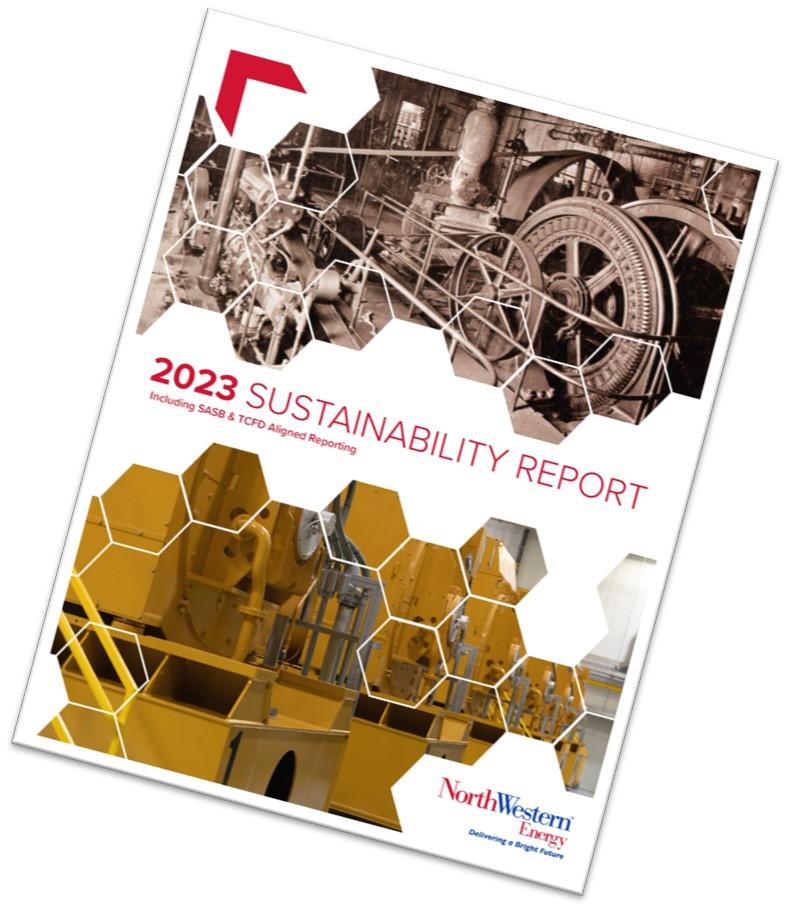

Our Board adopted a Code of Conduct which it reviews annually and requires each employee to certify annually. Our Code of Conduct embodies the standards that form our culture and sets forth expectations of conduct for all of our officers, directors, and employees, including all full- and part-time employees and certain persons that provide services on our behalf. Our Code of Conduct focuses on our corporate vision, mission and values. You may review
our Code of Conduct on our website at NorthWesternEnergy.com under About Us / Investors / Corporate Governance. We intend to post on our website any amendments to, or waivers from, our Code of Conduct. In addition, our Board adopted a separate Code of Ethics for the Chief Executive Officer and Senior Financial Officers that applies to our principal executive officer, principal financial officer, and principal accounting officer or controller (or persons performing similar functions), which includes complaint procedures that specifically apply to this separate code. Our Board also annually reviews this separate code of ethics, which is available on our website at the location noted above. We intend to post on our website any amendments to, or waivers from, this special code of ethics.
Our Audit Committee is primarily responsible for overseeing the Company’s risk management processes on behalf of the full Board by monitoring Company processes for management’s identification, control, response, and disclosure of key strategic, operational, financial, regulatory, compliance, employee, and security risks. The Audit Committee receives reports from management at least quarterly regarding the Company’s assessment of risks and reports regularly to the full Board, which also considers the Company’s risk profile. The Audit Committee and the full Board focus on the most significant risks facing the Company and review the corporate risk appetite when evaluating strategic alternatives and business development opportunities. The Compensation Committee oversees risks in human capital and compensation plans, the Governance Committee oversees risks in corporate governance and social responsibilities, and the Operations Committee addresses risks regarding environmental, security (cyber and physical), operational and safety matters.
The Board oversees the Company’s risk management, and our CEO and executive Enterprise Risk Management Committee act to ensure that our ERM programs achieve their objectives. In addition, the Audit Committee ensures that the Company’s key risks are reviewed in the various responsible committees on at least an annual basis. While management is responsible for the day-to-day risk management processes, we have structured our ERM reporting relationship through our Chief Audit and Compliance Officer who has a direct reporting relationship to the Audit Committee. We believe this division of responsibilities is the most effective approach for addressing the risks facing our Company and that our Board leadership structure supports this approach.
Our Company provides critical infrastructure to meet the needs of states, communities, and customers we serve. We recognize the importance of maintaining the trust and confidence of our customers, employees, regulators, and shareholders, and our Board devotes significant time and attention to oversight of cyber and physical security risk. From 2016 to early 2020, our Audit Committee had oversight responsibilities concerning cyber and physical security, as well as steps taken by management to understand and mitigate such risks. In early 2020, our Board established the Operations Committee and moved cyber and physical security oversight to the new committee. Our Board and Operations Committee each receive regular reporting on cyber and physical security topics, and cyber security was the focus of four of our previous NACD-provided director education sessions.
Our Audit Committee has adopted a written Related Persons Transaction Policy. The policy requires that any related person transaction be reviewed and approved by the Audit Committee based on its consideration of all available relevant facts and circumstances. The Audit Committee approves a related person transaction only if it determines in good faith that such transaction is in, or is consistent with, the best interests of the Company and its shareholders. Specifically, the Audit Committee considers whether (1) the transaction is on terms comparable to those that could be obtained in arms-length dealing with an unrelated third party, (2) there are business reasons to enter into the transactions, (3) the transaction could impair the independence of a director, and (4) the transaction would present an improper conflict of interest.
Under the policy, a “related person” is an officer, director, director nominee, or five percent or more shareholder of the Company (as well as any immediate family member of such individuals or any entity which is owned or controlled by any of such individuals); and a “related person transaction” is a transaction involving (1) the Company, (2) a related person, and (3) an aggregate annual amount in excess of $120,000.
The policy also provides ratification procedures for approval of transactions that have been commenced or consummated prior to any knowledge by the Audit Committee or the Company of the involvement of a related
person and for the annual review of ongoing related person transactions to ensure that such transactions continue to remain in the best interests of the Company and its shareholders. The policy is available on our website at NorthWesternEnergy.com under About Us / Investors / Corporate Governance.
Other than as described below, since January 1, 2023, there have been no related persons transactions that were required either to be approved or ratified under our Related Persons Transaction Policy or reported under the SEC’s related party transaction rules.
In connection with an $8 million natural gas supply storage project that the Board previously had approved, the Company negotiated with Merkel Engineering to serve as general contractor, provide engineering and supervision services, and supply project materials. Merkel Engineering is owned by John Merkel, who is the brother of Jason Merkel, the Company’s executive officer responsible for overseeing distribution operations. In exchange for such services, the Company would pay Merkel Engineering a general contractor fee, engineering and supervision services fees, and material supply services fees. As general contractor of the project, the transaction also contemplated that Merkel Engineering would invoice the Company for charges submitted by other consultants and subcontractors on the project.
Pursuant to the Related Persons Transaction Policy, Company management informed the Audit Committee of the negotiations prior to hiring Merkel Engineering. Management informed the Audit Committee that Merkel Engineering is owned by the brother of Jason Merkel, the Company’s executive officer responsible for overseeing distribution operations, an area unrelated to natural gas storage and supply. Neither Company executive Jason Merkel nor any of the employees in the area he supervises were involved in the decision to select or hire Merkel Engineering, and Jason Merkel has no interest in Merkel Engineering. Management further informed the Audit Committee that the contract terms were more favorable than those that the Company was able to obtain from arms-length negotiations with another vendor and pricing for materials that is better than the Company could achieve on its own.
The Audit Committee reviewed the proposed transaction and the information provided by management, as required by the policy, and approved the transaction under the policy in advance of its initiation. During 2023, the Company paid Merkel Engineering $5.6 million related the project, of which $278,000 was for Merkel Engineering’s engineering services, $588,000 was for Merkel Engineering’s general contractor fee, and $4.7 million was for charges from other project consultants and subcontractors paid by/through the general contractor. The Company also paid Merkel Engineering $43,000 for other unrelated projects in 2023. Pursuant to the policy, the Audit Committee continues to receive updates from management concerning this ongoing transaction.
Our Insider Trading Policy prohibits all of our directors, officers, and employees from engaging in certain transactions involving our securities, including hedging or other monetization transactions and publicly traded options. Specifically, the policy prohibits transactions involving publicly traded options, such as puts, calls, and other derivative securities, as well as hedging and monetization transactions, such as zero-cost collars and forward sales contracts. Our policy aims to align the interests of a director, officer, or employee with our and our shareholders’ interests and prohibits publicly traded option and hedging and monetization transactions because such transactions could create the appearance that a director, officer, or employee is trading on material non-public information, is focused on short-term performance, or otherwise misaligned. The Insider Trading Policy also prohibits our directors, officers, and employees from pledging any of our securities as collateral for a loan, unless pre-cleared by our general counsel. None of our directors or executive officers have pledged any of our securities as collateral for a loan. The policy is available on our website at NorthWesternEnergy.com under About Us / Investors / Corporate Governance
As a public utility, we are subject to various laws and regulations at federal, state, and local levels; and changes to these laws can affect our business, employees, communities and shareholders. Accordingly, we are committed to being an active and responsible corporate citizen.
We use our resources, through legally permissible participation in the political process, to advance matters of public policy that are consistent with our values, our legal obligations, and our Code of Conduct. We also encourage our employees to be active in civic and community activities, including by participating in the political and democratic process.
We have a formal political contributions policy. We do not make (and our policy prohibits) corporate contributions to candidates for political office, political parties, or committees, or political committees organized for the advancement of political candidates, whether federal, state, or local.
State and local ballot initiatives and referenda on important policy issues do have the potential to impact our business and our stakeholders. Accordingly, the policy permits corporate contributions in connection with such matters, as well as lobbying efforts and contributions to trade and local associations. In addition, the policy allows individual employees to make personal contributions to political action committees. The policy is available on our website at NorthWesternEnergy.com under About Us / Investors / Corporate Governance
You may contact members of our Board, individually or as a group, by sending your communication to our corporate secretary at the address provided below. The corporate secretary will forward any communication received to the intended recipient.
NorthWestern Energy
3010 West 69th Street
Sioux Falls, South Dakota 57108
Attn: Corporate Secretary


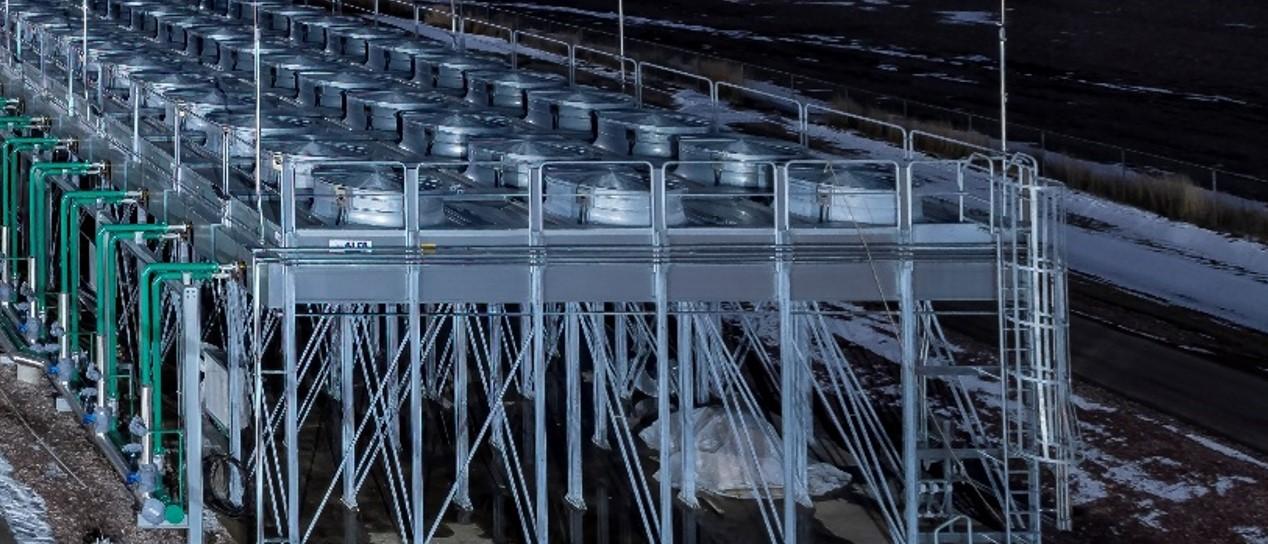
Our common stock is currently our only class of voting securities. The number of shares noted in the table below are those beneficially owned, as determined under the rules of the SEC, and such information is not necessarily indicative of beneficial ownership for any other purpose. Under such rules, beneficial ownership includes any shares as to which a person has sole or shared voting power or investment power and any shares which the person has the right to acquire within 60 days through the exercise of option, warrant, or right.
The following table provides information as of December 31, 2023, with respect to the beneficial ownership of shares of our common stock owned by our current non-employee directors, our NEOs, and by all of our directors and executive officers as a group.
*Less than one percent
We believe it is important that our interests are aligned with the interests of our shareholders. Accordingly, our Board has established robust stock ownership guidelines for our non-employee directors and executive officers. Our stock ownership guidelines are set forth in our Corporate Governance Guidelines on our website at NorthWesternEnergy.com under About Us / Investors / Corporate Governance.
Our Board recently increased its stock ownership guidelines. Previously, our board members were required to retain at least five times the value of his or her annual cash retainer in common stock or DSUs within five years of commencing service on our Board. With the recent increase, that requirement is now at least eight times the value, but capped at $1 million. For executives, the stock ownership guidelines range from two to six times base salary as summarized in the table on the following page. Each executive is restricted, absent a hardship and prior Board approval, from selling stock until his or her guideline amount is achieved and must continue to maintain the required ownership level once it is obtained.
Our Board instituted stock ownership guidelines to require its members and our executives to hold a meaningful financial stake in the Company to align our interests with those of our shareholders. As summarized in the
table below, even with the newly increased requirement for directors and the recent refreshment of both our directors and executive team, nearly all of our directors and NEOs have satisfied the applicable stock ownership guideline.
(1) Value of shares and DSUs owned and percent of guideline achieved are calculated as of December 31, 2023, using the closing stock price from December 29, 2023, of $50.89
(2) Ms. Edwards joined our Board on April 28, 2023, and is working toward satisfying the stock ownership guideline.
(3) Mr. Horsfall and Mr. Larson each satisfied our previous stock ownership guideline for non-employee directors and are working toward satisfying the recently increased guideline.
(4) In February 2021, Ms. Lail was promoted to CFO, and in January 2023, Ms. Heim was appointed as general counsel. Thus, they are both working toward satisfying their respective newly applicable stock ownership guidelines.
The table below sets forth information regarding whom we know to be the beneficial owners of more than five percent of our issued and outstanding common stock. The information reflected in the table is based solely on a review of statements filed with the SEC pursuant to Sections 13(d), 13(f), and 13(g) of the Exchange Act as of February 26, 2024
(1) Reflects shares beneficially owned by BlackRock, Inc. as of December 31, 2023, according to a statement on Schedule 13G/A filed with the SEC on January 22, 2024, which indicates that the beneficial owner, a holding company or control person in accordance with Rule 13d-1(b), has sole voting power with respect to 9,083,480 shares and sole dispositive power with respect to 9,209,029 shares. The beneficial owner holds shared voting or dispositive power with respect to none of the shares. The Schedule 13G/A certifies that the securities were acquired in the ordinary course and not with the purpose or with the effect of changing or influencing the control of NorthWestern Energy.
(2) Reflects shares beneficially owned by The Vanguard Group, as of December 29, 2023, according to a statement on Schedule 13G/A filed with the SEC on February 13, 2024, which indicates that the beneficial owner, an investment adviser in accordance with Rule 13d-1, has sole voting power with respect to 0 shares and sole dispositive power with respect to 6,650,086 shares. The beneficial owner has shared voting power with respect to 70,954 shares and shared dispositive power with respect to 130,174 shares. The Schedule 13G/A certifies that the securities were acquired in the ordinary course and not with the purpose or with the effect of changing or influencing the control of NorthWestern Energy.
(3) Reflects shares beneficially owned by American Century Investment Management, Inc., American Century Companies, Inc., and Stowers Institute for Medical Research, as of December 31, 2023, according to a statement on Schedule 13G filed with the SEC on February 12, 2024, which indicates that the beneficial owners – respectively, an investment adviser in accordance with Rule 13d-1, a parent holding company or control person in accordance with Rule 13d-1(b), and a parent holding company or control person in accordance with Rule 13d-1(b) – has sole voting power with respect to 4,145,353 shares and sole dispositive power with respect to 4,283,218 shares. The beneficial owner has shared voting or dispositive power with respect to none of the shares. The Schedule 13G certifies that the securities were acquired in the ordinary course and not with the purpose or with the effect of changing or influencing the control of NorthWestern Energy.
The table below includes summary information about our Equity Compensation Plan, as of the close of business on December 31, 2023:
a. The aggregate number of shares of our common stock subject to outstanding stock options, warrants, and rights, including unvested performance units and unvested restricted share units;
b. The weighted average exercise price (or grant date fair value) of those outstanding stock options, warrants, and rights; and
c. The number of shares that remain available for future option grants, excluding the number of shares to be issued upon the exercise of outstanding options, warrants, and rights.
For additional information regarding our long-term incentive plans and the accounting effects of our stock-based compensation, please see Note 15 to our consolidated financial statements included in our Annual Report on Form 10-K for the year ended December 31, 2023
in
(1) Consists of the Equity Compensation Plan, which is the Company’s only equity compensation plan.
(2) Consists of (a) 153,439 unvested performance units, with a weighted average grant date fair value of $54.37, granted to employees who participate in our LTIP, and (b) 60,779 unvested restricted share units, with a weighted average grant date fair value of $47.91, granted to executive officers under our ERRP. For descriptions of our LTIP and ERRP, please see the Compensation Discussion and Analysis section.
(3) Amount represents the weighted average grant date fair value of the outstanding awards reflected in column (a).
(4) Awards under the Equity Compensation Plan can take the form of stock options, share appreciation rights, restricted and unrestricted share awards, deferred share units, and performance awards.


We will hold our virtual Annual Meeting of Shareholders for NorthWestern Energy on April 26, 2024, at 10:00 a.m. Central Time at www.virtualshareholdermeeting.com/NWE2024
Only shareholders of record or their legal proxy holders as of the record date and our invited guests may participate in the virtual annual meeting. If you wish to attend the virtual annual meeting and your shares are held in street name at a brokerage firm, bank, or other nominee, you will need to have the 16-digit control number that can be found on your Annual Meeting Notice.
A webcast of the Annual Meeting will be available on our website at NorthWesternEnergy.com under About Us / Investors / Presentations, Webcasts & Reports through April 27, 2025.
The proxy statement, annual report, voting card, and voting instructions are available at www.proxyvote.com where you can also cast your vote and request to receive future proxy materials in printed form by mail or electronically by email. These materials will be available for one year following the annual meeting. You will need the control number provided on your notice to access the electronic materials.
On or about March 8, 2024, we mailed to our shareholders either (1) a Notice of Internet Availability of Proxy Materials or (2) a copy of this proxy statement, a proxy card, and our 2023 Annual Report.
We file annual, quarterly, and current reports, proxy statements, and other information with the SEC. These filings are available through a website maintained by a third-party and accessible through our Company website at NorthWesternEnergy.com under About Us /Investors / Financials / SEC Filings. Our public filings also are available to the public from document retrieval services and the website maintained by the SEC at www.sec.gov
Our Board asks you to appoint our independent Board Chair, Dana Dykhouse, and our President and CEO, Brian Bird, as your proxy holders to vote your shares at the annual meeting. You make this appointment by voting the proxy card provided to you or by using one of the voting methods described below.
If appointed by you, the proxy holders will vote your shares as you direct on the matters described in this proxy statement. If you sign and date your proxy card, but do not provide direction, they will vote your shares as recommended by our Board.
We are not aware of any matters to be brought before the annual meeting other than the matters described in the notice of annual meeting accompanying this proxy statement. The persons named in the form of proxy solicited by our Board will vote all proxies that have been properly executed, and if any matters not set forth in the notice of annual meeting are properly brought before the meeting, such persons will use their best judgment to vote on such matters.
All shareholders of record as of the close of business on the record date, February 26, 2024, are entitled to receive notice of and to vote, online or by proxy, at the virtual annual meeting or any postponement or adjournment of the annual meeting. If you owned shares of our common stock at the close of business on the record date, you are entitled to one vote per share upon each matter presented at the annual meeting. The Company does not have any other outstanding class of voting stock. Shareholders whose shares are held in an account at a brokerage firm, bank, or other nominee (i.e., in “street name”) will need to obtain a proxy from the broker, bank, or other nominee that holds their shares authorizing them to vote at the annual meeting.
:Voting on the Internet. You may vote by proxy on the internet up until 11:59 p.m. Eastern Daylight Time the day before the annual meeting. The website for internet voting is www.proxyvote.com
Easy-to-follow prompts allow you to vote your shares and confirm that your instructions have been properly recorded. If you vote on the internet, you can request electronic delivery of future proxy materials.
) Voting by Telephone. You may vote by proxy by telephone at 1 (800) 690-6903 until 11:59 p.m. Eastern Daylight Time the day before the annual meeting by using the toll-free number listed on your proxy card or voting instruction form. Easy-to-follow prompts allow you to vote your shares and confirm that your instructions have been properly recorded.
+
Voting by Mail. Mark, sign and date your proxy card or voting instruction form and return it in the postage-paid envelope provided. Your proxy card or voting instruction form must be received far enough in advance of the annual meeting to allow sufficient time for processing.
?
rVoting online during the Virtual Annual Meeting. If you attend the virtual annual meeting and wish to vote online during the meeting, you will need the 16-digit control number that can be found on your Annual Meeting Notice.
Revoking Your Proxy or Your Voting Instructions to Your Proxy Holders. If you are a record holder of our common stock, you can change your vote at any time before your proxy is voted at the annual meeting by voting another time using one of the methods described above or by attending the annual meeting and voting online during the meeting. You also may revoke your proxy by delivering a notice of revocation to our corporate secretary at NorthWestern Energy, 3010 West 69th Street, Sioux Falls, South Dakota 57108, prior to the vote at the annual meeting. If your shares are held in street name, you must contact your broker, bank, or other nominee to revoke your proxy.
At the close of business on the record date, there were 61,275,280 shares of NorthWestern Energy common stock outstanding and entitled to vote at the annual meeting. Each outstanding share is entitled to one vote.
A quorum, which is a majority of the outstanding shares as of the record date, is necessary to hold a valid annual meeting. A quorum will be present at the annual meeting if the holders of a majority of the shares of our common stock outstanding and entitled to vote on the record date are present online at the virtual meeting or represented by proxy. Abstentions and broker non-votes are included for determining whether a quorum is present. If a quorum is not present at the annual meeting, we expect that the annual meeting will be adjourned to solicit additional proxies.
Under Nasdaq rules, certain shareholder nominees (such as brokers) have the discretion to vote shares on routine matters, such as the ratification of the appointment of our independent registered public accounting firm, when they do not receive voting instructions from the beneficial owner. They do not have authority to vote on non-routine
matters (such as the election of directors and the advisory vote to approve NEO compensation) unless they receive instruction from the beneficial owner.
A “broker non-vote” occurs when your broker submits a proxy for your shares but does not indicate a vote for a particular proposal because the broker does not have authority to vote on that proposal and has not received voting instructions from you. Broker non-votes are not counted as votes for or against the proposal in question or as abstentions, and are not counted to determine the number of votes present for the particular proposal.
Under Nasdaq rules, if your broker holds shares in your name and delivers this proxy statement to you, the broker is entitled to vote your shares on Proposal 2 — Ratification of Independent Registered Public Accounting Firm even if the broker does not receive voting instructions from you. Without your instructions, the broker is not entitled to vote your shares on Proposal 1 — Election of Directors or Proposal 3 — Advisory Vote to Approve Named Executive Officer Compensation. We encourage you to provide instructions to your broker, bank, or other nominee. This ensures your shares will be voted at the annual meeting.
The required vote and method of counting votes for the various business matters to be considered at the annual meeting are described in the table below. If you sign and return your proxy card without indicating your vote, your shares will be voted “FOR” each of the nominees for director, “FOR” ratification of Deloitte & Touche LLP as our independent registered public accounting firm, “FOR” the advisory vote to approve NEO compensation, and in accordance with the recommendations of our Board on any other matters properly brought before the annual meeting for a vote.
If a quorum exists, the nominees with the most “FOR” votes are elected.
Proposal 1:
Election of Directors
Proposal 2:
Ratification of Deloitte & Touche LLP as the independent registered public accounting firm for 2024
Proposal 3:
Advisory vote to approve named executive officer compensation (Say on Pay)
FOR election of each director nominee
FOR
If a Nominee receives more “WITHHOLD AUTHORITY” votes than “FOR” votes, the Nominee must submit resignation for consideration by the Governance Committee and final Board decision.
If a quorum exists, the majority of votes present online at the meeting or represented by proxy and entitled to vote.
If a quorum exists, the majority of votes present online at the meeting or represented by proxy and entitled to vote.
FOR
No effect No effect
Vote against
Not applicable; broker may vote shares without instruction
Vote against No effect
This advisory vote is not binding on the Board, but the Board will consider the vote results when making future executive compensation decisions.
The Board is providing these proxy materials to you in connection with the solicitation by the Board of proxies to be voted at our virtual annual meeting. NorthWestern will pay the cost of the solicitation, which will be made primarily by the use of mail and the internet. Proxies also may be solicited in person or by telephone, or similar means by our directors, officers, or employees without additional compensation.
We will, upon request, reimburse shareholders who are brokers, banks, or other nominees for their reasonable expenses in sending proxy materials and annual reports to the beneficial owners of the shares they hold of record. Broadridge Financial Solutions, Inc., will be the proxy tabulator.
If you need assistance with voting your proxy or have questions regarding our annual meeting, please contact:
Travis Meyer Director CorporateFinance and Investor Relations Officer
(605) 978-2945 or
Emily Folsom Assistant Corporate Secretary(605) 978-2871
No persons have been authorized to give any information or to make any representations other than those contained in this proxy statement and, if given or made, such information or representations must not be relied upon as having been authorized by us or any other person. You should not assume that the information contained in this proxy statement is accurate as of any date other than the date of this proxy statement, and the mailing of this proxy statement to shareholders shall not create any implication to the contrary.
Under the rules of the SEC, a single Notice of Internet Availability of Proxy Materials or set of annual reports and proxy statements may be sent to any household at which two or more shareholders reside if they appear to be members of the same family. Each shareholder continues to receive a separate proxy card. This procedure, referred to as householding, reduces the volume of duplicate information shareholders receive and reduces mailing and printing expenses. In accordance with a notice sent to certain shareholders who shared a single address, only one annual report and proxy statement were sent to that address unless any shareholder at that address requested that multiple sets of documents be sent. However, if any shareholder who agreed to householding wishes to receive a separate annual report or proxy statement for 2024 or in the future, he or she may call (800) 542-1061 or write to Broadridge Householding Department, 51 Mercedes Way, Edgewood, NY 11717, and the Company will deliver promptly upon such written or oral request a separate Notice of Internet Availability of Proxy Materials or annual report or proxy statement. Shareholders sharing an address who wish to receive a single set of reports may do so by contacting their banks, brokers, or other nominees, if they are beneficial holders, or by contacting Broadridge at the address above, if they are record holders.
Shareholder Proposals for Inclusion in Next Year’s Proxy Statement. To be considered for inclusion in the proxy statement for our annual meeting to be held in 2025, shareholder proposals submitted under Exchange Act Rule 14a-8 must be received by the corporate secretary of NorthWestern Energy not later than November 8, 2024. Such proposal must comply with all applicable SEC requirements that a shareholder must meet in order to have a shareholder proposal included in the Company’s proxy statement.
Other Shareholder Proposals for Presentation at the 2025 Annual Shareholders’ Meeting. For nominations of persons for election as a director or for any proposal that is not submitted for inclusion in next year’s proxy statement, but is instead sought to be presented directly from the floor of the 2025 Annual Meeting, the Company’s bylaws require that notice must be given to the corporate secretary of NorthWestern Energy between December 27, 2024 and January 26, 2025.
Universal Proxy Card. To comply with the universal proxy rules, shareholders who intend to solicit proxies of director nominees for the 2025 Annual Meeting must provide notice to the corporate secretary of NorthWestern
Energy that sets forth the information required by Rule 14a-19 under the Exchange Act, as well as the information specified below, between December 27, 2024 and January 26, 2025
Shareholder proposals should be delivered or mailed to and received by the Company at its principal executive offices in accordance with the dates set forth above and addressed to the corporate secretary of NorthWestern Energy at 3010 West 69th Street, Sioux Falls, South Dakota, 57108.
To be in proper written form, a shareholder’s notice for both annual and special meetings must set forth:
(1) as to each person whom the shareholder proposes to nominate for election as a director, (a) the name, age, and business and residence address of the person, (b) the principal occupation or employment of the person, (c) the class or series and number of shares of capital stock of the Company that are owned beneficially or of record by the person, (d) any other information relating to the person that would be required to be disclosed in a proxy statement or other filings required to be made in connection with solicitations of proxies for election of directors pursuant to Section 14 of the Exchange Act and the rules and regulations promulgated thereunder, and (e) the written consent of each proposed nominee to being named as a nominee and to serve as a director if elected;
(2) as to any other business that the shareholder proposes to bring before the meeting, (a) a brief description of the business desired to be brought before the meeting, (b) the text of the proposal or business (including the text of any resolutions proposed for consideration, and, in the event that such business includes a proposal to amend the bylaws of the Company, the language of the proposed amendment), (c) the reasons for conducting such business at the meeting, and (d) any material interest of such shareholder in the business being proposed and the beneficial owner, if any, on whose behalf the proposal is being made; and
(3) as to the shareholder giving this notice and the beneficial owner, if any, on whose behalf the nomination or proposal is made, (a) the name and record address of such shareholder and any such beneficial owner, (b) the class or series and number of shares of capital stock of the Company that are owned beneficially or of record by such shareholder and beneficial owner, (c) a description of all arrangements or understandings between such shareholder and any such beneficial owner and each proposed nominee and any other persons (including their names) pursuant to which the nomination(s) are to be made by such shareholder, (d) a representation that such shareholder is a shareholder of record entitled to vote at such meeting and intends to appear in person or by proxy at the meeting to nominate the persons and/or conduct the business being proposed as described in the notice, and (e) a representation of whether such shareholder or any such beneficial owner intends or is part of a group which intends (i) to deliver a proxy statement and/or form of proxy to holders of at least the percentage of the Company’s outstanding capital stock required to approve or adopt the proposal or elect the nominee and/or (ii) otherwise to solicit proxies from shareholders in support of such proposal or nomination. The foregoing notice requirements shall be deemed satisfied by a shareholder with respect to an annual meeting if the shareholder has notified the Company of his or her intention to present a proposal at such annual meeting in compliance with Regulation 14A (or any successor thereof) promulgated under the Exchange Act and such shareholder’s proposal has been included in a proxy statement that has been prepared by the Company to solicit proxies for such annual meeting. The Company may require any proposed nominee to furnish such other information as it may reasonably require to determine the eligibility of such proposed nominee to serve as a director of the Company.
The list below defines the various terms, abbreviations, and acronyms used in this proxy statement.
Audit Committee
Board
CAP................................................
CD&A
CEO or PEO
CFO
COBRA
Code of Conduct
Company
Audit, Finance, and Risk Committee
Board of Directors of NorthWestern Energy Group, Inc.
Compensation actually paid, as determined in accordance with the calculations required by Item 402(v) of Regulation S-K
Compensation Discussion and Analysis
Chief Executive Officer
Chief Financial Officer
Consolidated Omnibus Budget Reconciliation Act
Code of Conduct and Ethics
NorthWestern Energy Group, Inc., d/b/a NorthWestern Energy Compensation Committee Human Resources Committee
Deloitte..........................................
Director Deferred Plan ................
Deloitte & Touche LLP
NorthWestern Energy Group, Inc. Deferred Compensation Plan for Non-Employee Directors
DSU Deferred share unit; a unit of Company common stock held in an individual’s deferred compensation account that cannot be sold or transferred until such individual departs the Company, subject to certain conditions
Equity Compensation Plan or
Plan
NorthWestern Energy Group, Inc., Amended and Restated Equity Compensation Plan
EPS................................................. Earnings per share
ERM................................................ Enterprise Risk Management and Business Continuity Programs
ERRP
ESG
Executive Retention / Retirement Program
Environmental, social, and governance Exchange Act
Executive Officer
Securities and Exchange Act of 1934, as amended
The Named Executive Officers and other executives responsible for Company policy, strategy and operations. For 2023, there were ten executive officers serving on our executive team.
Governance Committee.............. Nominating and Governance Committee
Key Employee Severance Plan .. NorthWestern Corporation Key Employee Severance Plan, effective Oct. 19, 2016
LTIP
NACD
Named Executive Officer or NEO...........................................
Long-Term Incentive Program
National Association of Corporate Directors
Anyone who served as CEO or CFO during 2023, and the three other most highly compensated individuals, other than the CEO and CFO, who were serving as executive officers at the end of 2023. Our named executive officers for 2023 are identified in the Compensation Discussion and Analysis section of this proxy statement.
Nasdaq ..........................................
NorthWestern, NorthWestern Energy, our, us, or we
NYSE
Officer Deferred Plan
The Nasdaq Stock Market LLC
NorthWestern Energy Group, Inc.
New York Stock Exchange
NorthWestern Corporation 2009 Officer Deferred Compensation Plan
Operations Committee Safety, Environmental, Technology and Operations Committee
OSHA
PCAOB
Occupational Safety and Health Administration
Public Company Accounting Oversight Board
Record Date.................................. February 26, 2024
ROAE .............................................
Return on average equity
SAIDI.............................................. System Average Interruption Duration Index
SEC Securities and Exchange Commission
TSR Total shareholder return
WTW The Compensation Committee’s independent compensation consultant

